The Entrepreneurs / Global
Business and entrepreneurship in Austria
Join us on a special survey of Austria’s most exciting businesses, peaks of success and outposts of opportunity. Expect a Viennese whirl, top Tyrolean talent, people making it in Bregenz and more.
welcome
Time for a reset?
Who hasn’t daydreamed about beginning another life in fresher climes? You know, the reverie in which you saunter out of work and hit a ski slope, then take in a new restaurant during a deal-sealing dinner? We mean the sort of place where you can picture yourself living better and breathing a little easier – somewhere that’s well connected but offers ample opportunities for escape, where things are well made and traditions are respected but there’s enough room in the market for innovative businesses to make things anew. Welcome to Austria.
monocle’s survey sweeps from rural Vorarlberg to the heights of the Austrian Alps, past sleepy villages and on to the cosmopolitan capital. Whether you’re running a technology start-up and seeking manufacturing know-how and talent or simply looking for somewhere to hike, read on. Shall we show you around? ––

Doing business in Austria
In practice, that means that starting a new business here can come with generous grants and funding, especially in Vienna, where the start-up infrastructure is strong. Housing is also more affordable than elsewhere.
In an Austrian workplace, a command of German is crucial, as many offices are unlikely to communicate in any other language, though schemes are being introduced to integrate non-German speakers into the labour market. It’s also worth noting that more than one in three companies in Austria were run by women in 2023.The most important rule to remember is that things take time in Austria, so don’t be impatient. Don’t expect an immediate response and always follow up a phone call with an email or, in some cases, even a physical letter. In a country known for its bureaucracy, properly filed and addressed paperwork is essential, as is a little rigour in how tasks are approached.
There’s more to do in some areas (such as liberalising Sunday trading and embracing the start-up scene) but Austria isn’t trying to be Silicon Valley. And that’s probably one reason why you’ll like it. ––
We visit three thriving companies showing different ways that keeping things in the family can benefit a business, from a smart Alpine retreat to a winery planting the seeds of success.
FAMILY BUSINESS 01
A Moll Apotheke zum weissen Storch. Vienna
The pharmacy with creative chemistry
Hoping to breathe new life into their family pharmacy, four siblings reimagined the building as a series of apartments with an events space in the basement. The lesson? A fresh perspective could be just the medicine.
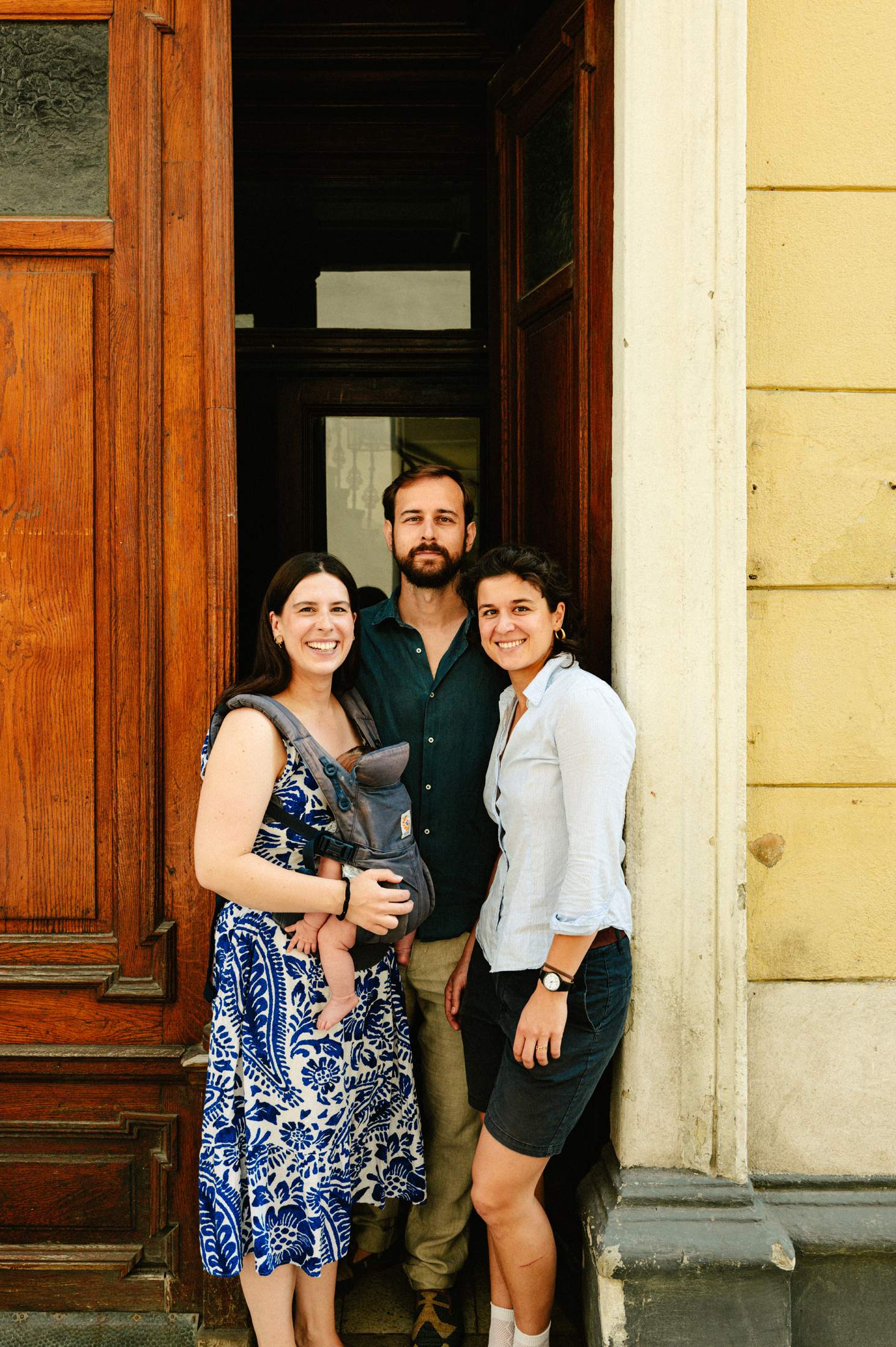
The four Bano siblings – two brothers and two sisters – were still in their twenties when their mother passed away in 2016. They inherited their family home in central Vienna, which also comprised pharmacy A Moll Apotheke zum weissen Storch. Their mother, the daughter of an Austrian baron, had always been protective of the property, keeping journalists and other nosy folk at bay. However, the Banos offspring quickly realised that, for the building to flourish, it needed to be reimagined and given a new lease of life. So they started from its foundations.
Beneath the house is a multilevel cellar that once served as the pharmacy’s medicine depot (and was the location of the 12th birthday party of Anna-Katharina, the younger Bano sister). A clean-up effort involving the removal of 250 tonnes of soil and clutter unearthed some curious objects: 19th-century musket parts, a gold wedding ring from 1922 and an untouched Soviet grenade. “It looked like something out of a comic book,” says Anna-Katharina, who discovered the bomb.
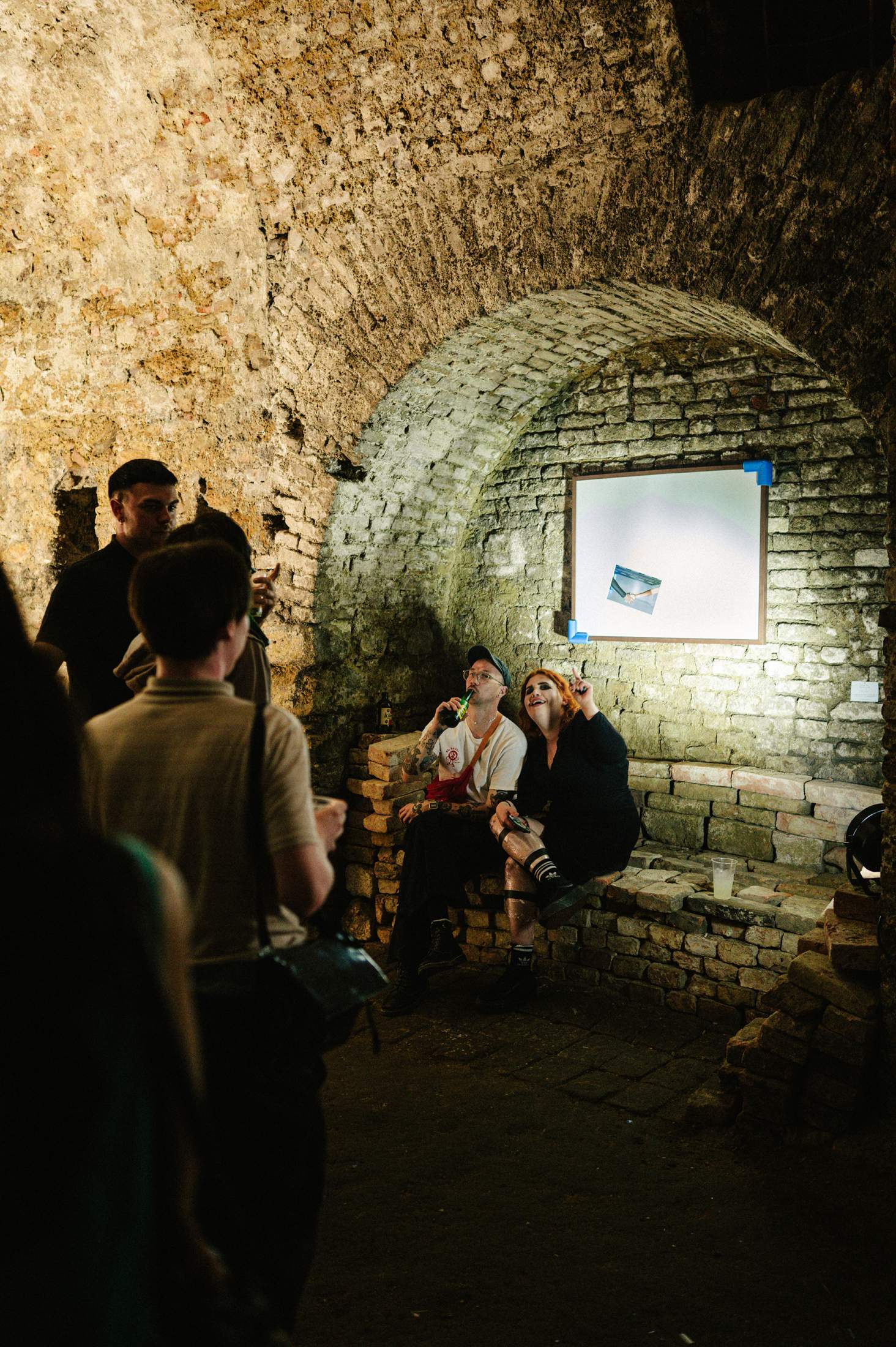
Before long, the siblings had transformed the cellar into one of Vienna’s most unconventional venues for private parties, exhibitions and other events. One exhibition, which took place in July, featured more than 20 artists, mostly from Germany; in June, Berlin-based DJ collective Herrensauna hosted a big party here. Sitting in the heart of historic Vienna, the building straddles three streets and so has three addresses. The pharmacy is listed as Tuchlauben 9 but the Banos consider their home address to be Steindlgasse 2. “This is our base,” says Georg, the second-eldest, who owns the pharmacy and works there alongside his sister Elisabeth Zichy. “The entrance has a magical feeling for us.”
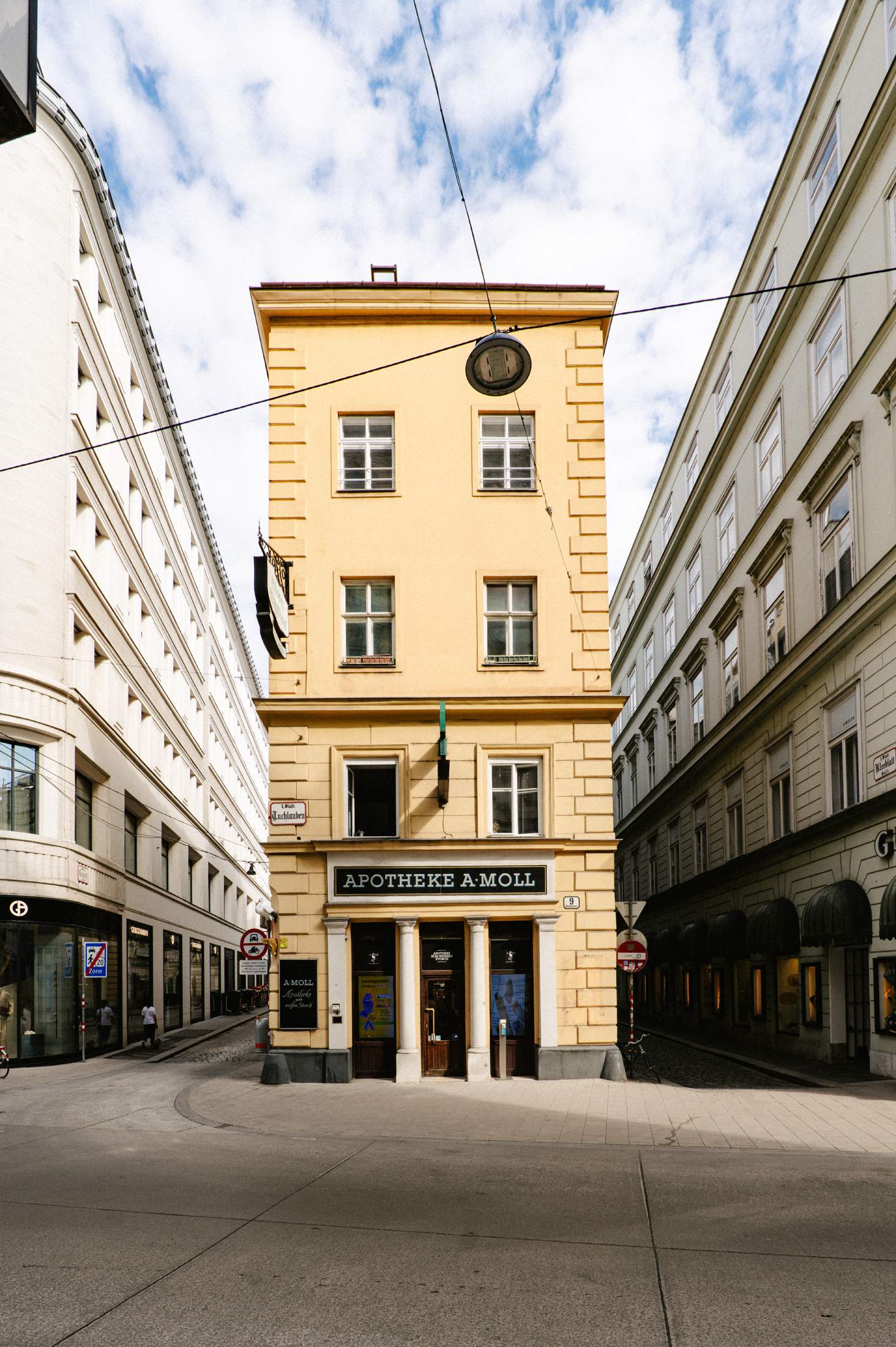
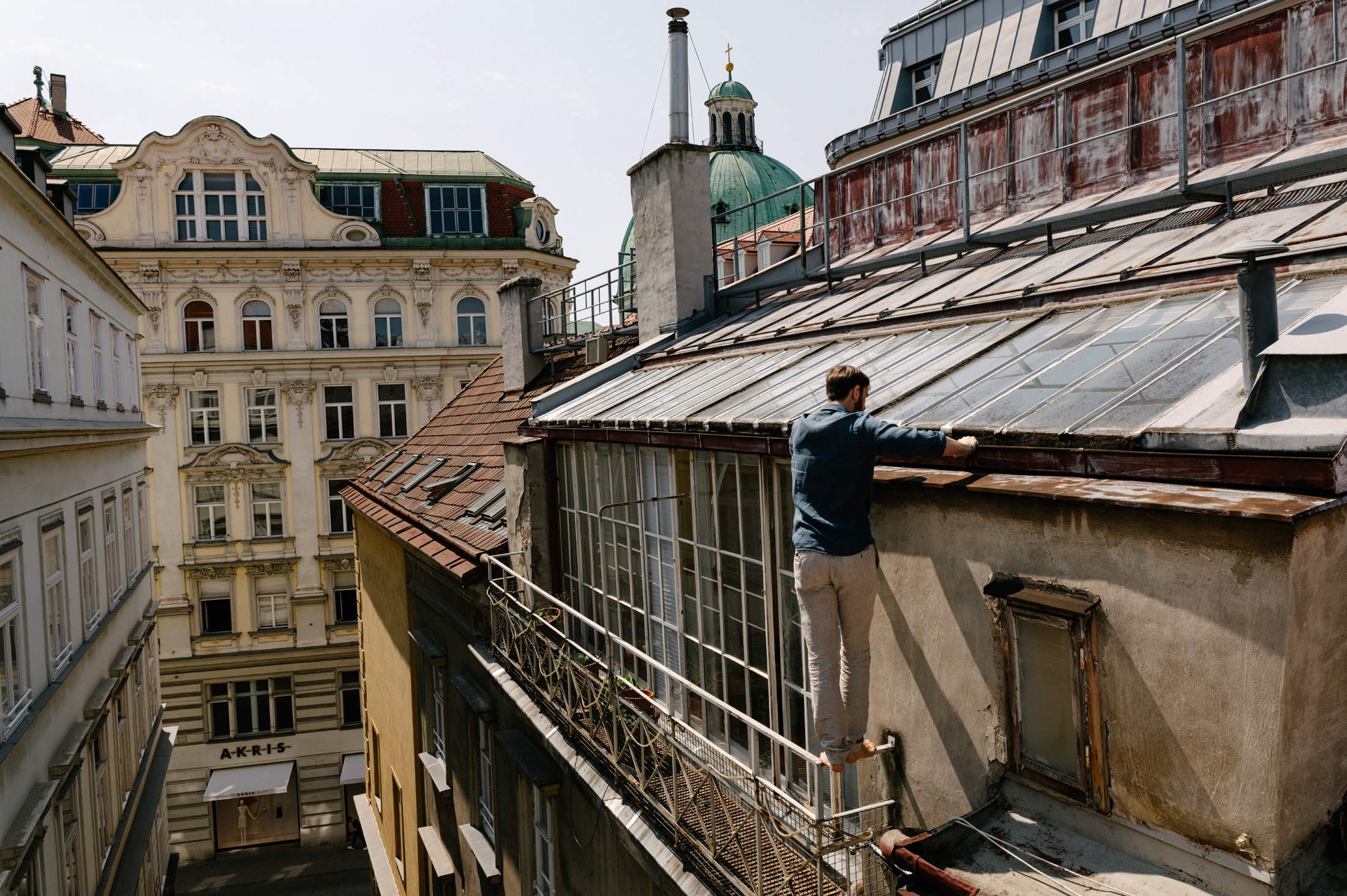
A Moll Apotheke zum weissen Storch, whose history stretches back more than 500 years, was originally on the Graben, a nearby shopping street. It wasn’t until the 1870s that August Moll, the Banos’ maternal ancestor, moved it to Tuchlauben. Moll was an extraordinary figure. As well as creating Franzbranntwein, a topical remedy for muscle and joint pain, the pharmacist was an early devotee of the emerging art of photography; in 1856, he became the first in the city to sell equipment for professional and amateur photographers. He later built a “photo atelier” on top of the roof for developing images and served as an official purveyor of photographic supplies to the Habsburg court. Moll attended world expositions in Paris as a member of Vienna’s Photographic Society, earning him a medal from Napoleon iii.
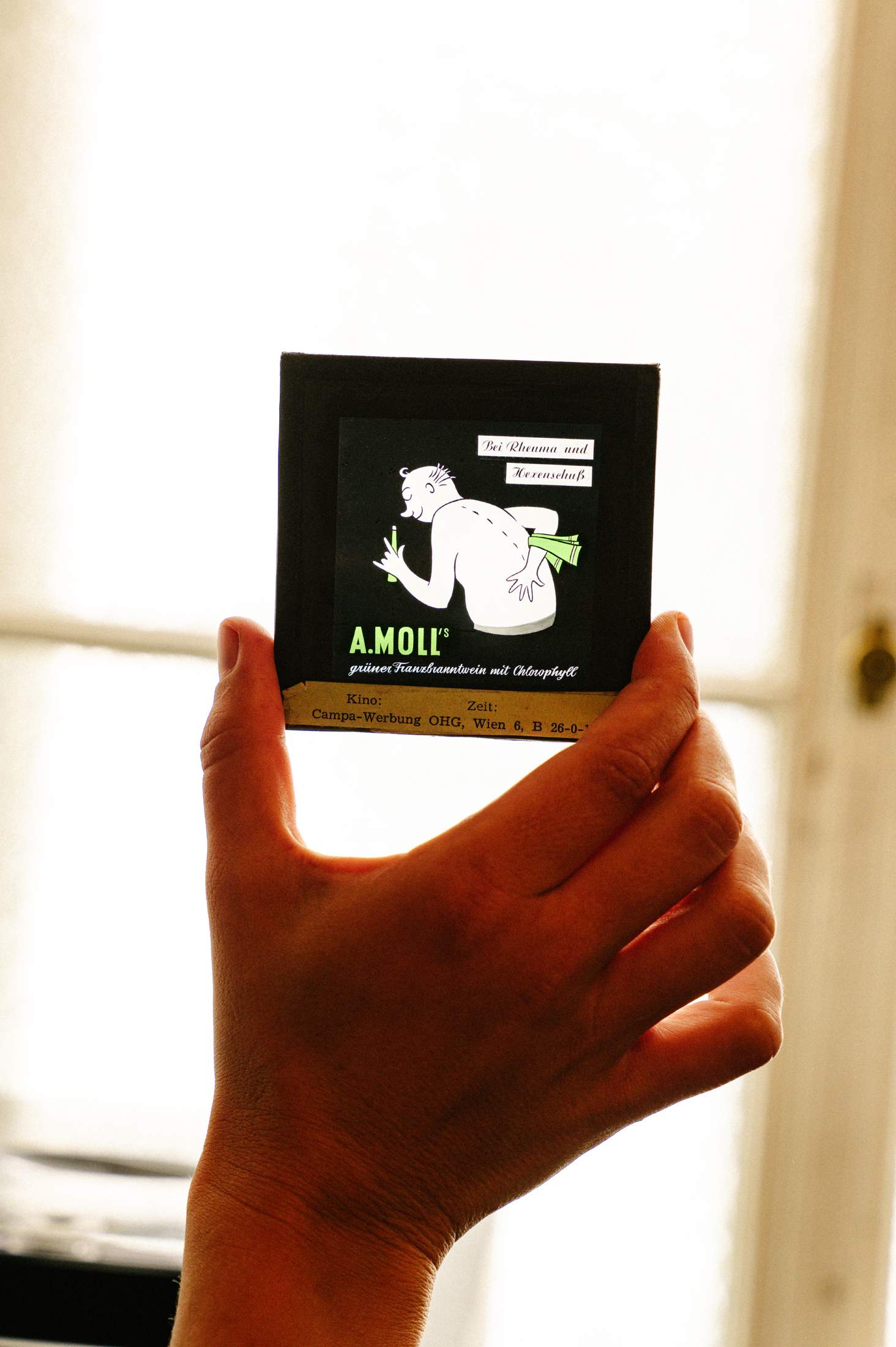
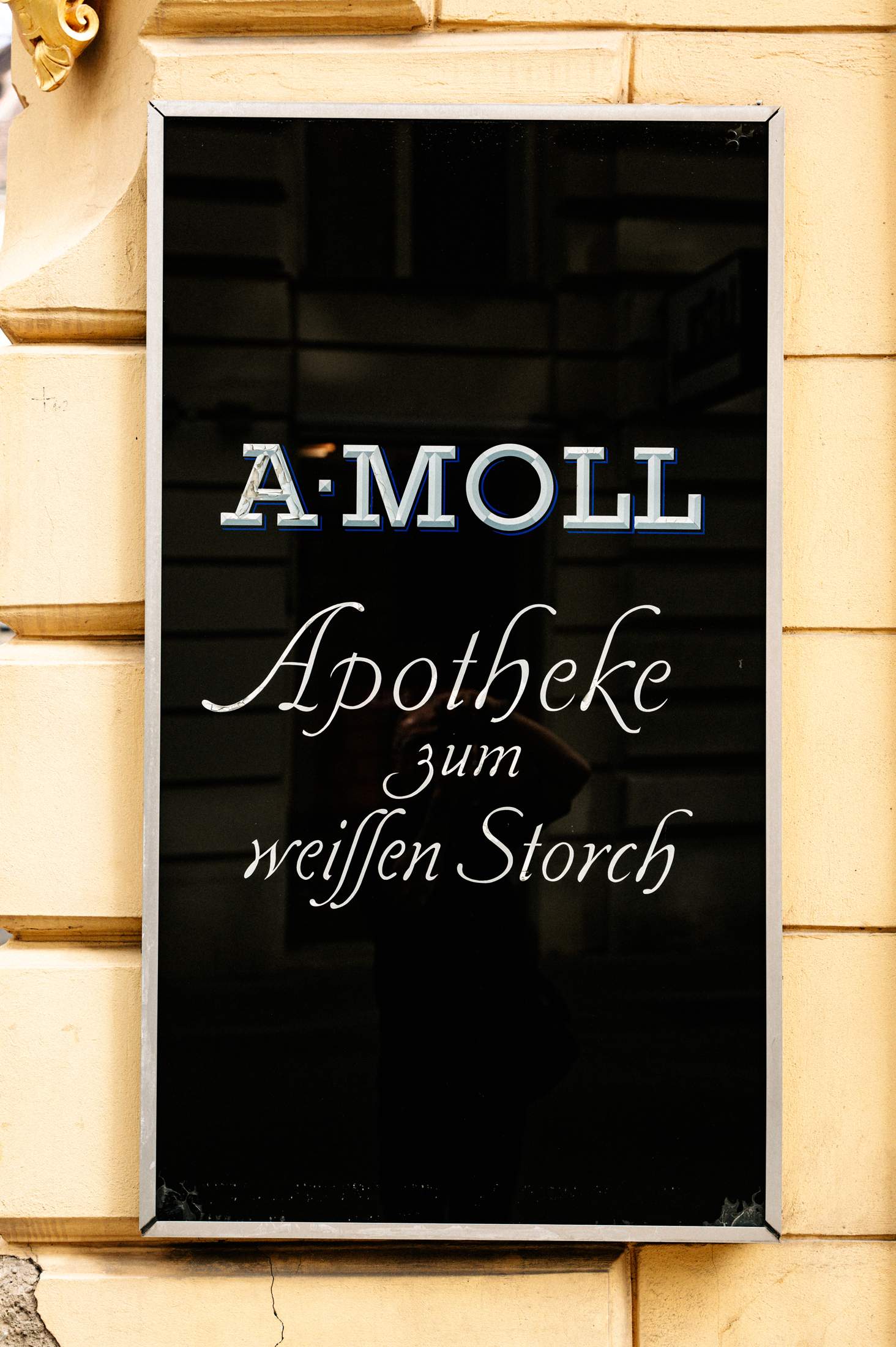
This legacy has always been a source of inspiration for the family. “My middle name is August, after him,” says Georg, displaying Moll’s medal, which now looks a little dulled with age. Moll’s work ethic has clearly been passed down to Georg, who completed his pharmacy degree in 2019 and now spends as many as 60 hours a week in the shop.
The first years of the coronavirus pandemic brought a surge in business, with daily test numbers sometimes reaching 1,000. This enabled the pharmacy to break even for the first time in years but didn’t generate enough revenue to help the Banos revitalise the whole building. So, Georg and his sisters decided to rent out the flats above, including the one in which they had grown up, to their friends – many of whom were artists or musicians and thus a welcome breath of fresh air in the stuffy world of medicine.

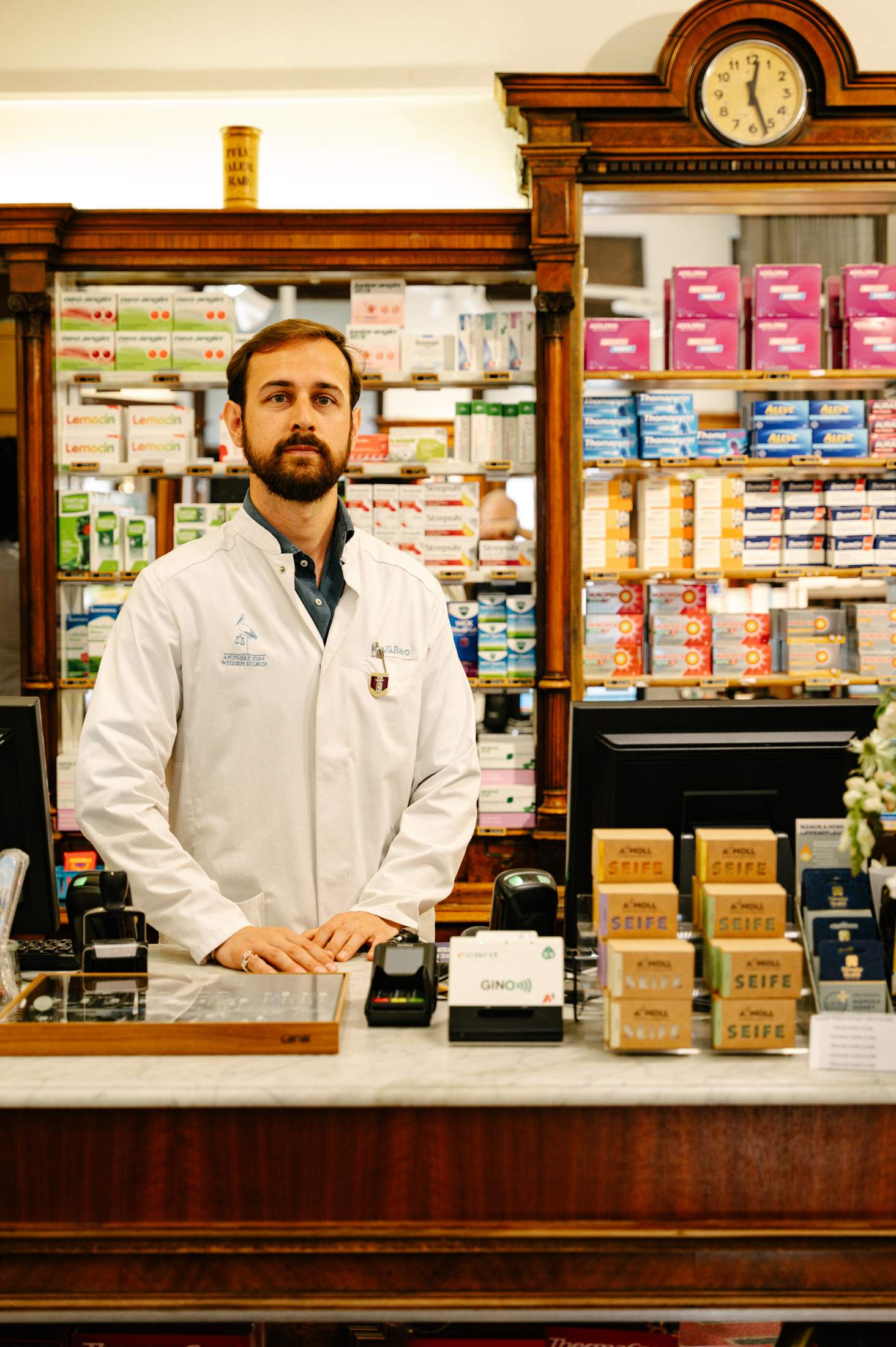
Though monthly rents for the 14 flats have increased slightly recently, they remain well below Vienna’s average. “In the past couple of years, we have tried to run this as a proper business,” says Georg, as he walks up to a top-floor flat that, until 2017, was occupied by tenants who had lived there since just after the Second World War. They had rented it at a discounted rate, on the condition that they repaired the roof, which had been damaged by an Allied bomb.
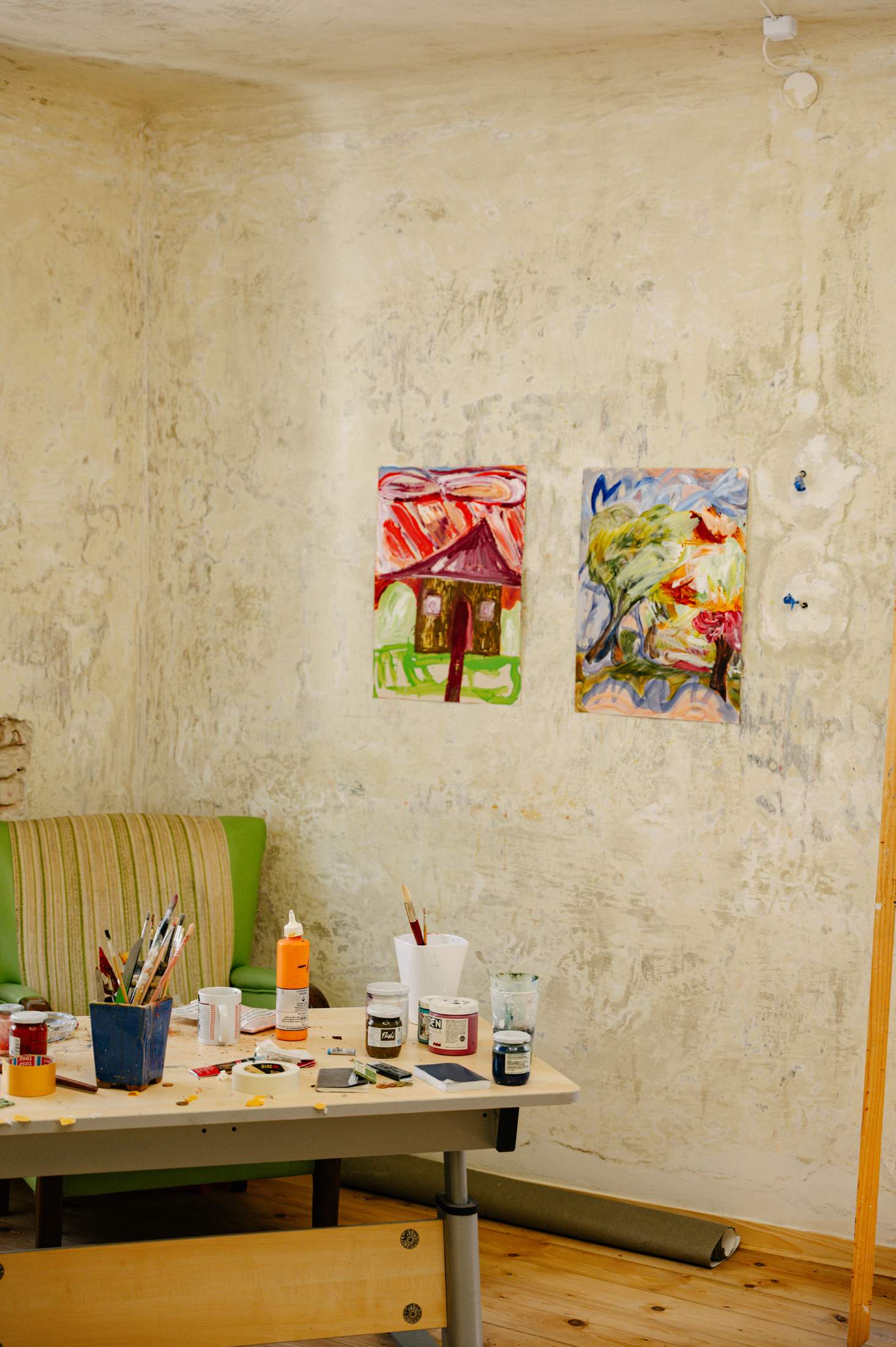
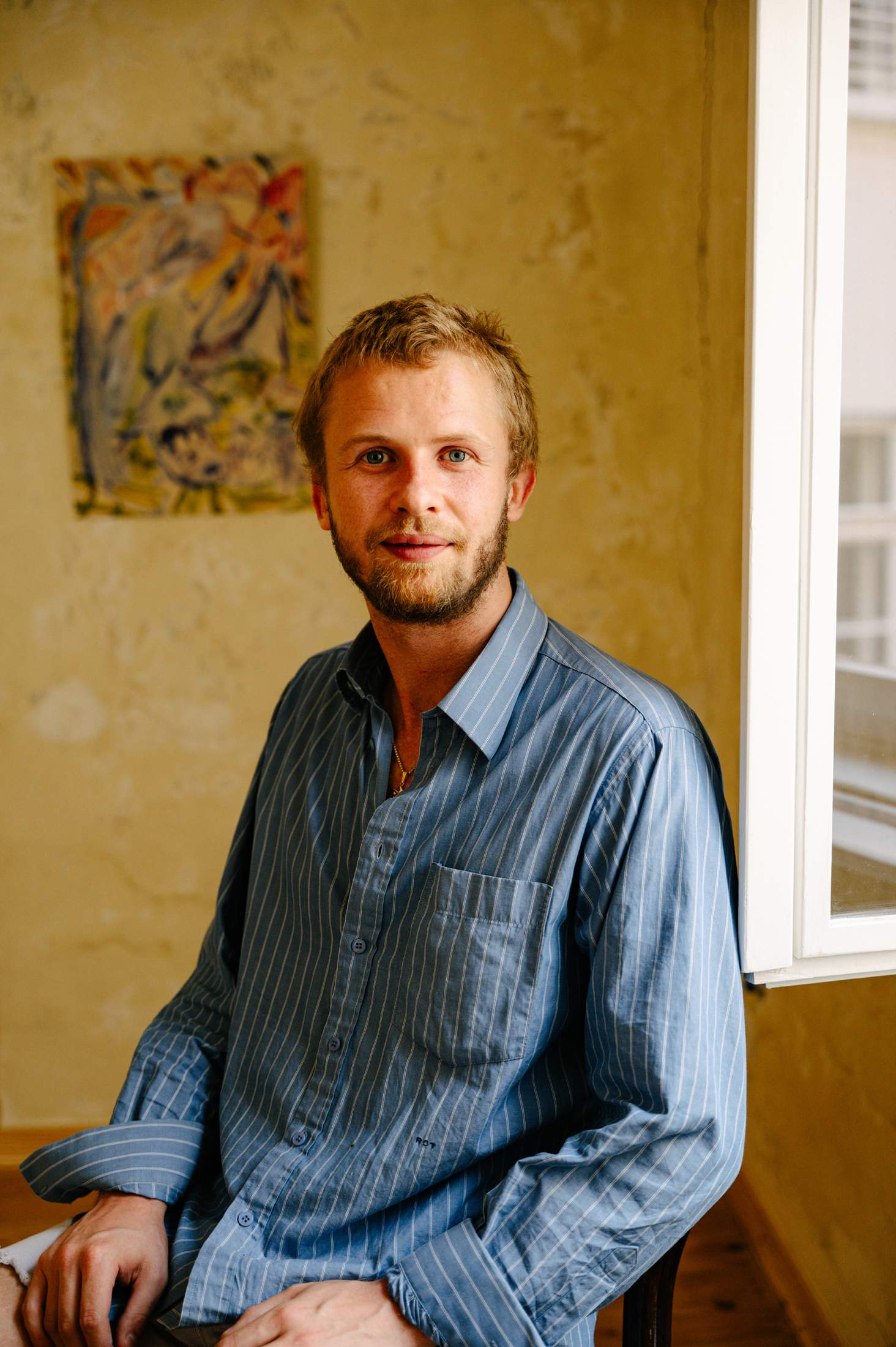
Today, it’s the home, studio and occasional exhibition space of Norwegian-born artists Kjeld Undseth and Elida Høvik. Like many of the tenants, Undseth first met the Banos through mutual friends and was fascinated by the house’s history and the eminent figures who had walked its corridors. Among them was Sigmund Freud, who spent 10 years working in a children’s hospital that used to occupy a wing of the building.
“I don’t think about Freud in my daily life,” says Undseth. “But I believe in ghosts to some extent, so have felt him around the house.”
The crown jewel of the building, the family flat, is now occupied by some of the Banos’ closest friends: Nicolaus Erich, Paul Schmid-Schmidsfelden and Lorenz Revertera. The trio have formed a band named after one of the house’s three addresses (Café Steindl Partie) and use one of its rooms for rehearsals.
The Banos now all live elsewhere. Georg, who says that he needed some distance from his workplace, was the last to move out. But the door remains open to them and, indeed, to anyone else. Erich recalls a demonstration calling for more trees to be planted on Steindlgasse that migrated to the flat. “We started walking up to the apartment and realised that there was something like 100 people following us. Nobody was turned away.”
It’s this sense of openness that the Banos are keen to nurture. What began with friends popping by to cook and lend a hand as the siblings took over has evolved into a small community that is as devoted to the house as its owners. “There’s a positive energy here,” says Georg, noting that the absence of trouble – aside from the occasional squabble with neighbours over noise – reflects how well it all works. “It’s almost exclusively nice people who live here and visit. I don’t know how it happened but that’s just the way it is.”

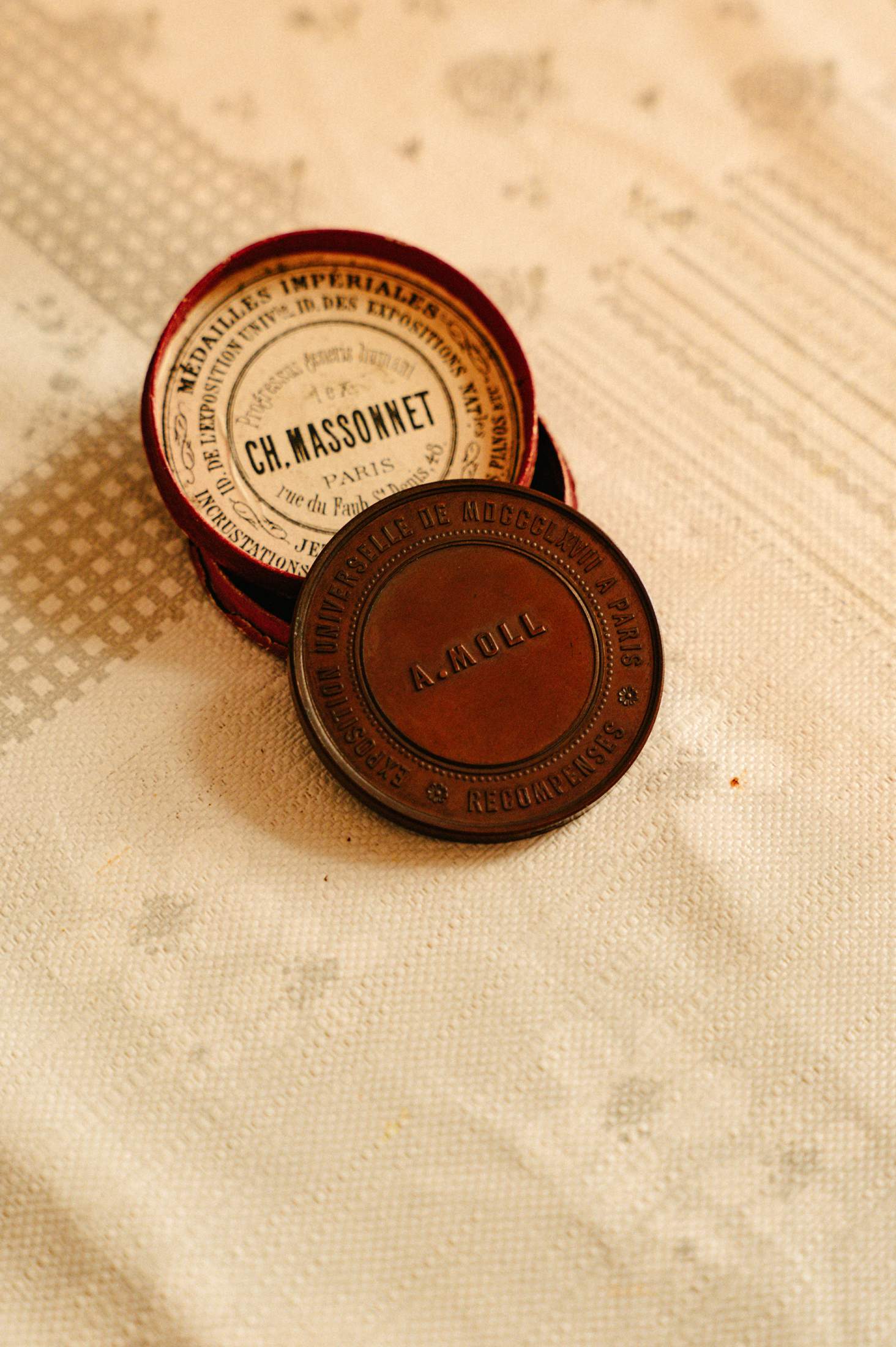
FAMILY BUSINESS 02
Eriro. Ehrwald, Tyrol
The back-to-nature Alpine bolthole
On the site of an old mountain inn, three families joined forces to build a pared-back retreat where guests are treated to life’s simpler pleasures.

At the foot of the Zugspitze massif in the Austrian Alps is a new hideaway. For nearly a century, a mountain inn had catered to guests on the spot where Eriro now stands. Seeking to pay tribute to this humble old establishment, local hotelier Dominik Posch bought the site with his wife, Amelie, hoteliers Martin and Christina Spielmann, and Andreas Mader, a timber entrepreneur. They built a reimagined cabin almost entirely from timber from the surrounding forests.
The venture seeks to launch a new kind of family-backed Alpine tourism. The chalet, reached by cable car, has just nine suites. There are no TVs; the lamps are handmade and most of the bathtubs are made from single tree trunks. “The idea is to recreate the feeling of being on an old mountain pasture,” says Martin.
The retreat is designed to sharpen the senses. Guests are given socks instead of slippers so that their feet can feel the floor in the corridors, which are lined with wool. A booklet suggests things to do, from a ski tour to a lesson on handling cattle. There’s even a yodelling instructor. But Eriro also champions the simpler things, such as walking in the rain. “People have forgotten what it feels like to be bored,” says Amelie. “It’s time to bring that back.”
FAMILY BUSINESS 03
Meinklang. Burgenland
The winery championing nature and new growth
A century-old family business, Meinklang has long been committed to natural viniculture. Now, it has extended this approach to encompass organic practices and even a school at its Burgenland farm.
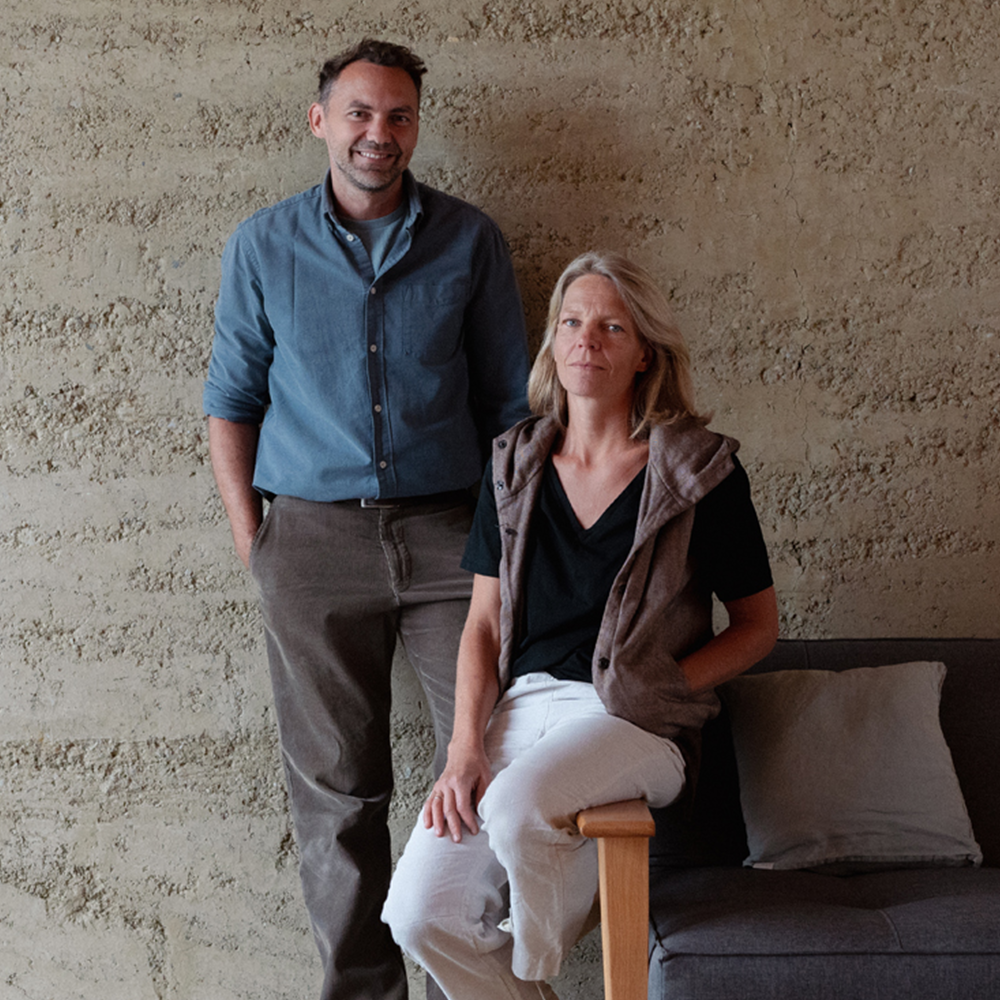
The name Meinklang, which means “My Sound”, might initially seem to have little connection to what this biodynamic farm and winery does. But Werner Michlits – who runs the business alongside his wife, Angela, and brothers Lukas und Johannes – insists that this isn’t the case. “This is my sound,” he says. “What I mean is that everyone has their own vibe.”
Based in the Austrian province of Burgenland, Meinklang exports its wine worldwide and has a particular focus on being in harmony with nature. Its farm produce, along with its freshly baked bread and pastries, can be enjoyed at its shop in Vienna.
The family business has existed since before the region officially became a part of Austria – Burgenland was in Hungary until 1922 – and it has always had an organic ethos. In more recent decades, the Michlits have gone a step further and adopted biodynamic farming methods, a concept pioneered by Austrian philosopher Rudolf Steiner a century ago that prohibits the use of toxic chemicals. Though this approach has its critics, who consider it esoteric and unscientific, Werner and Angela insist that the extra effort is worthwhile. “It’s about bringing energy back into the soil,” says Angela. “Decades of industrial farming have drained it.”
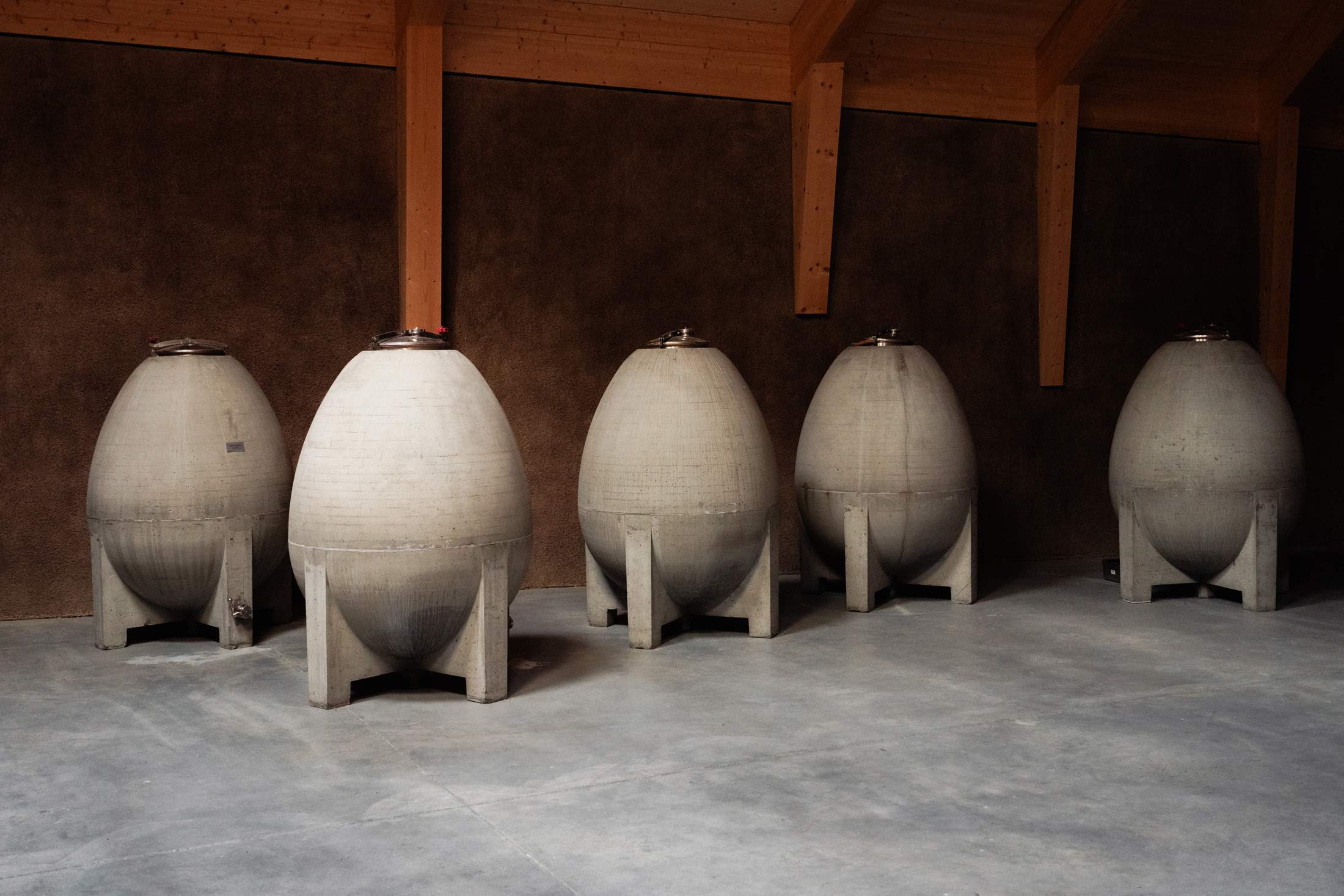

In keeping with Steiner’s holistic view of life, the premises also host a Waldorf school, which has about 90 pupils. With its free-form curriculum, this educational system has many sceptics too but Werner and Angela believe that organic produce naturally goes well with what they call “organic education”. —
meinklang.at
Whether perfecting children’s bicycles or energising sleepy neighbourhoods, a new crop of business leaders is finding ways to thrive in Austria. Here are a few who have caught our eye.
ENTREPRENEUR TO WATCH
Theresa Imre. Founder, Markta
The farm-fresh businesswoman
After founding a delivery service that thrived during the lockdowns, Theresa Imre launched a bricks-and-mortar space in Vienna selling fresh produce sourced from family farms. Today, her business shows no sign of throwing in the towel.
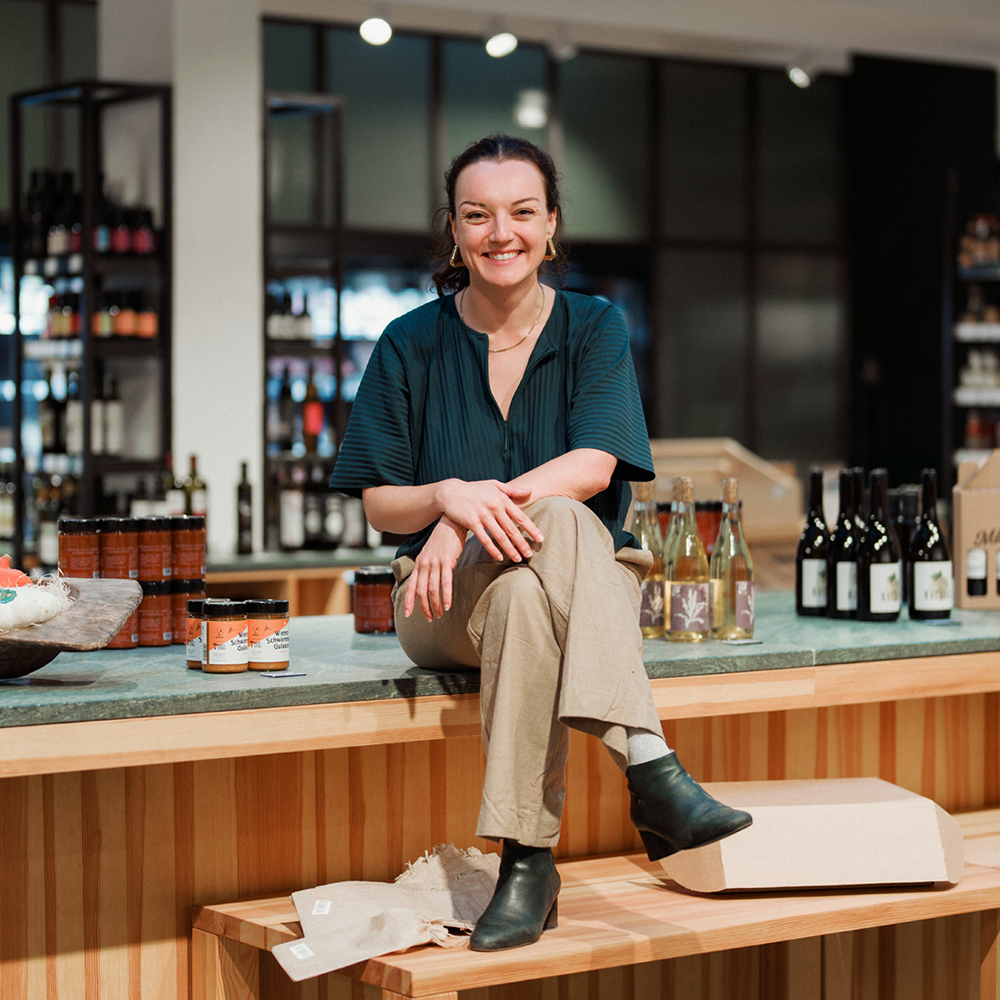
Ten years ago, Theresa Imre was working as a business consultant in Vienna while writing an award-winning food blog. “I was getting so many requests from farmers who needed help in the digital age,” she tells monocle. So, in 2017, Imre left her job to launch Markta, an online platform shipping farm-sourced fruit, vegetables, meat and dairy across Austria. During the first coronavirus lockdown, its orders soared from about 150 a week to 2,500 – a huge challenge for a company with just five employees. “It was basically impossible to manage,” says Imre. “But friends and family chipped in.”
It became clear that the business needed a logistics centre and a physical shop. The former arrived in 2020 and the latter, on Alser Strasse in Vienna’s 9th district, followed in 2023. Produce in the shop comes directly from partner farms, which now number more than 200.
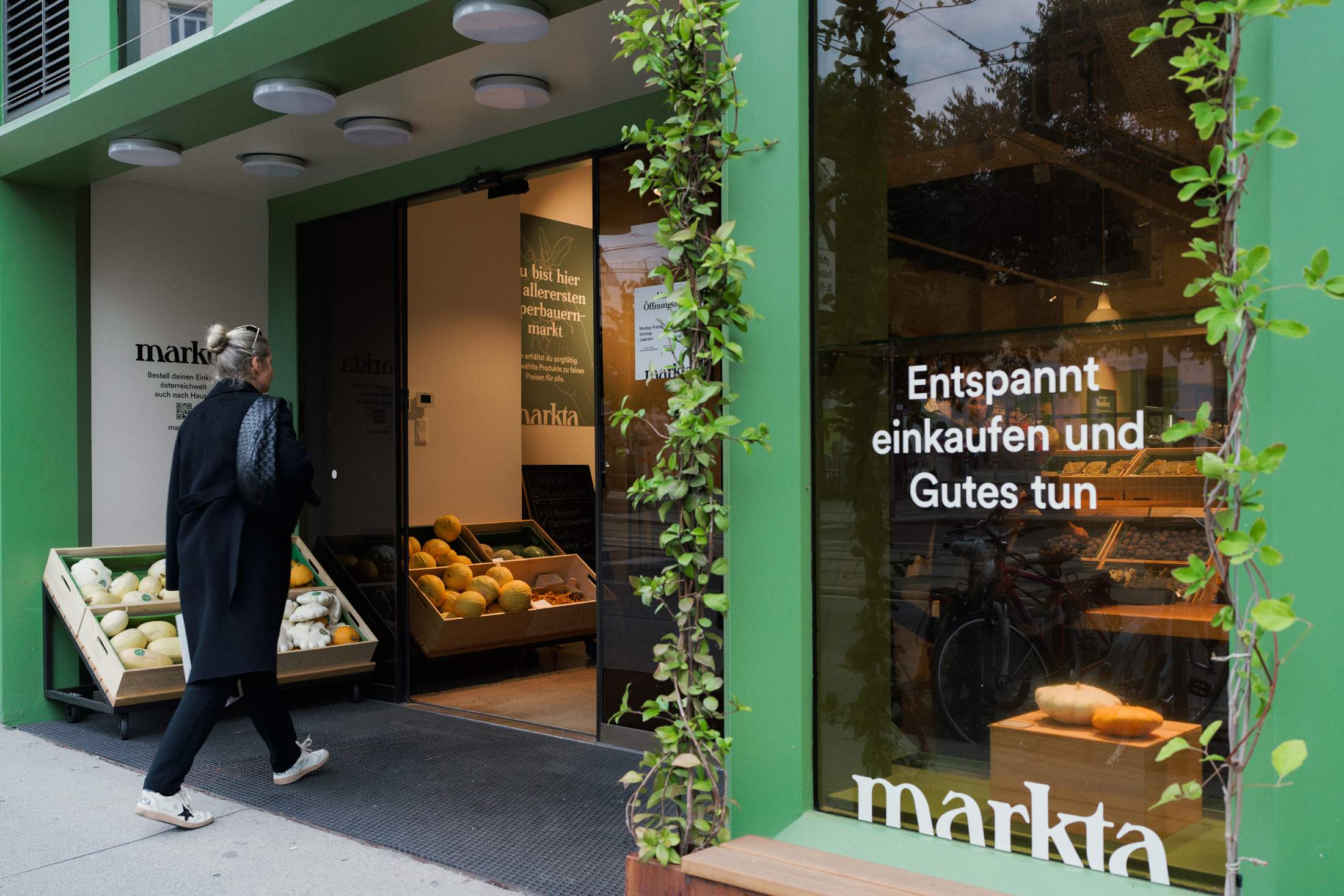
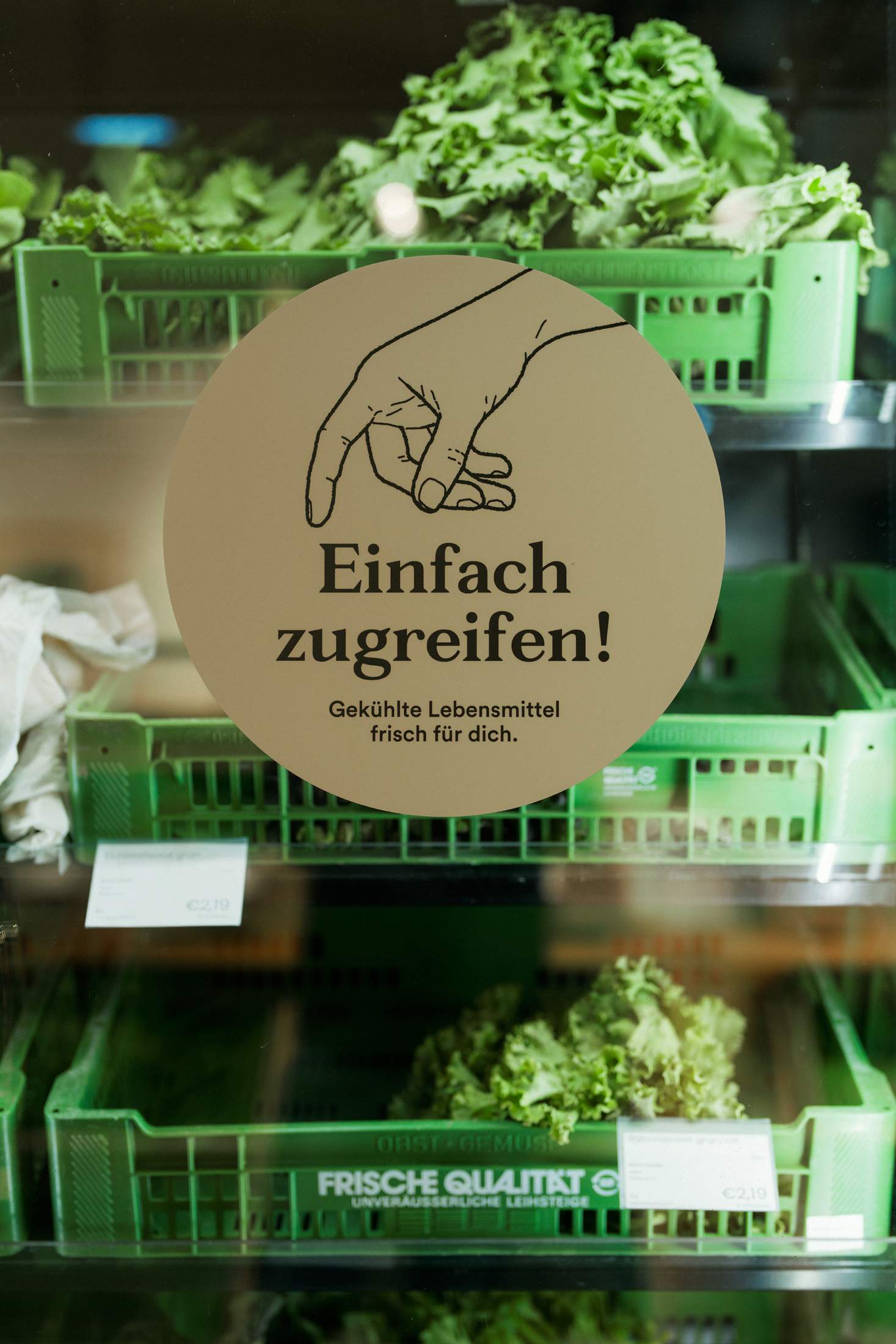
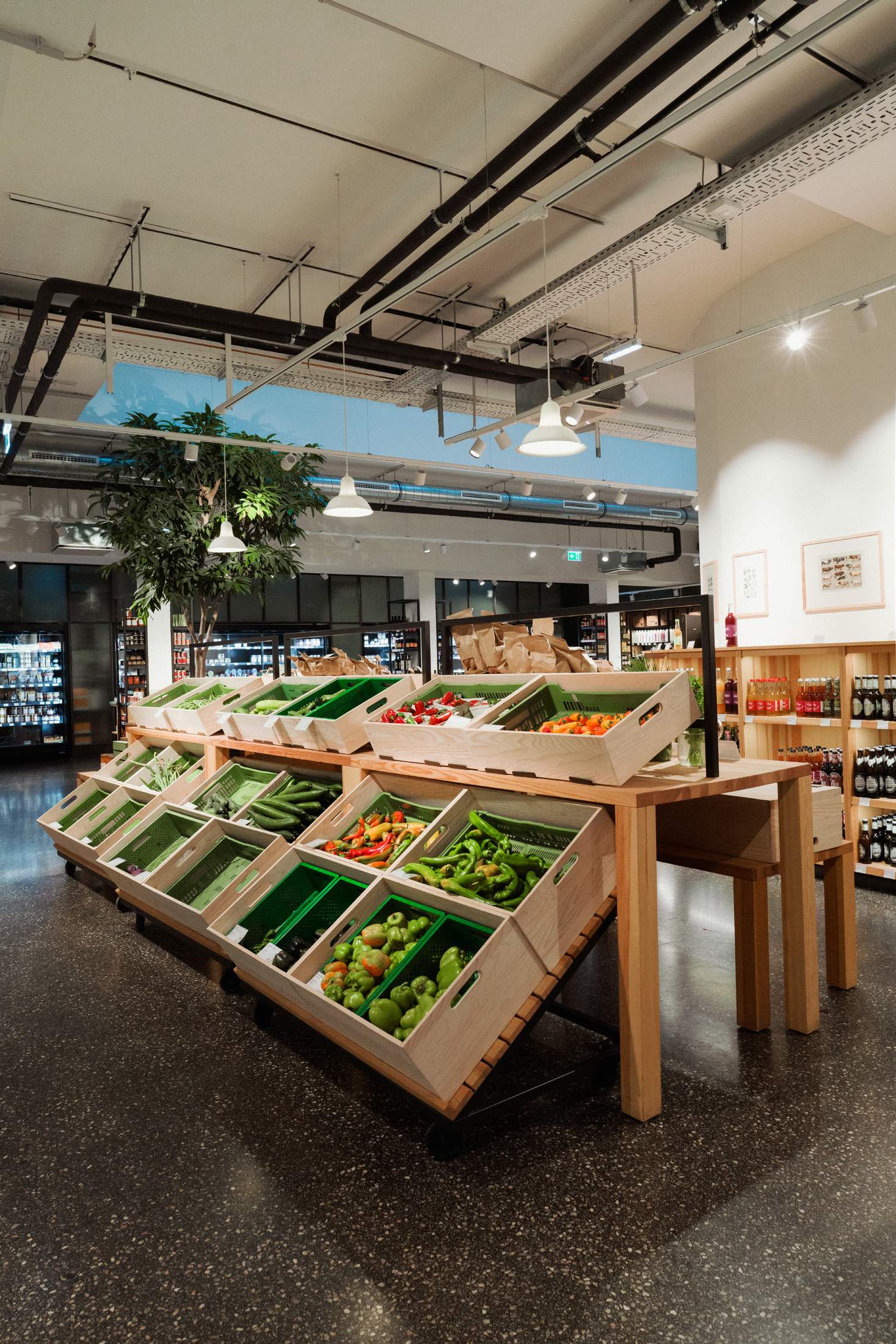
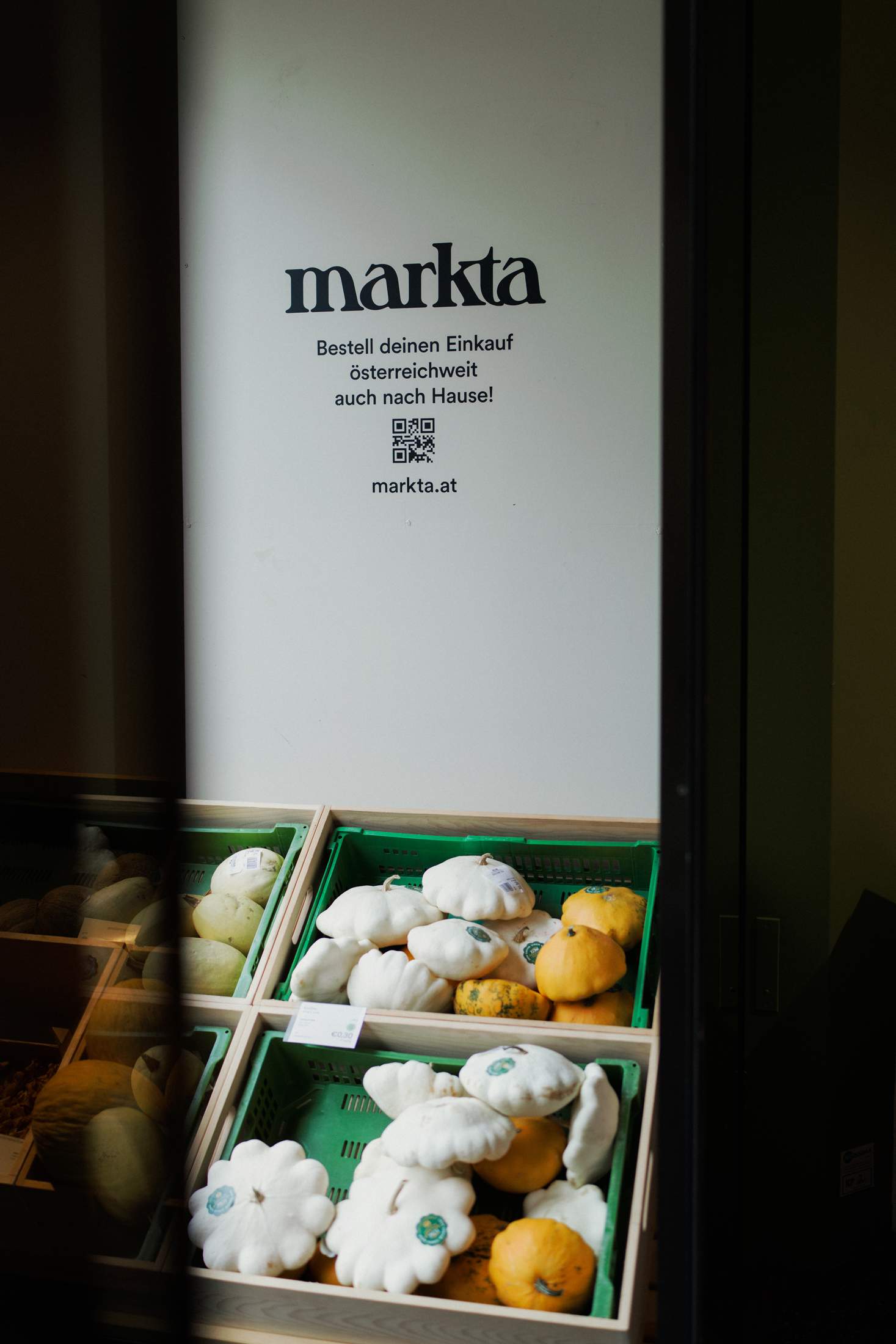

Even with more employees and the additional running costs of the shop, Imre remains committed to a fair pricing structure. For every product sold, the farmers keep two thirds of the proceeds. The shop attracts everyone from eco-conscious thirtysomethings to pensioners with an eye for fine produce. Buoyed by this success, Imre is planning five more shops in Vienna. — markta.at
ENTREPRENEUR TO WATCH
Martin Auer. Baker and CEO, Martin Auer
The baker cooking up international success
The much-loved bread and pastries made by a Graz bakery will soon be sating New Yorkers too.
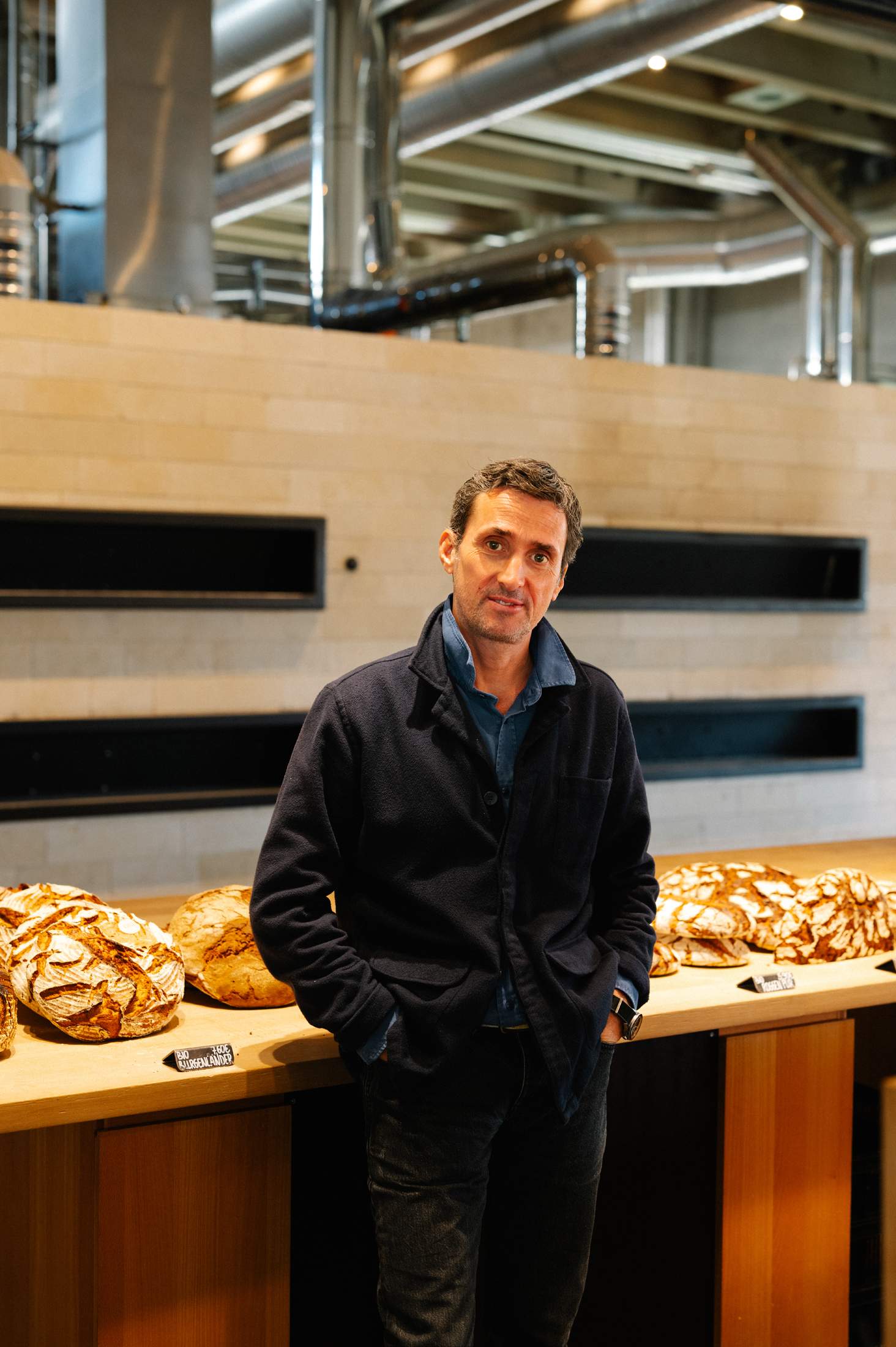
Third-generation baker Martin Auer has spent his entire life surrounded by bread, which he calls “the oldest cultural good”. By the time he took over the family business in 2011, its bakeries were an institution in Graz. One of its outposts was well known for its chandelier; Auer’s father had hung it there in the austere 1960s. “It seemed absurd to people that there was a chandelier in a bakery,” says Auer. “But they found it appealing at the same time.” This shop, in the city centre, is also said to have been Austria’s first bakery specially designed by an architect.
Auer has ensured that each of his locations in Graz, Carinthia and Vienna has its own character. “We don’t want to be a chain,” he says. The flagship shop is at the company’s HQ on the outskirts of Graz – a striking building that resembles a university campus. All production takes place here, as well as training courses for bakers and staff.
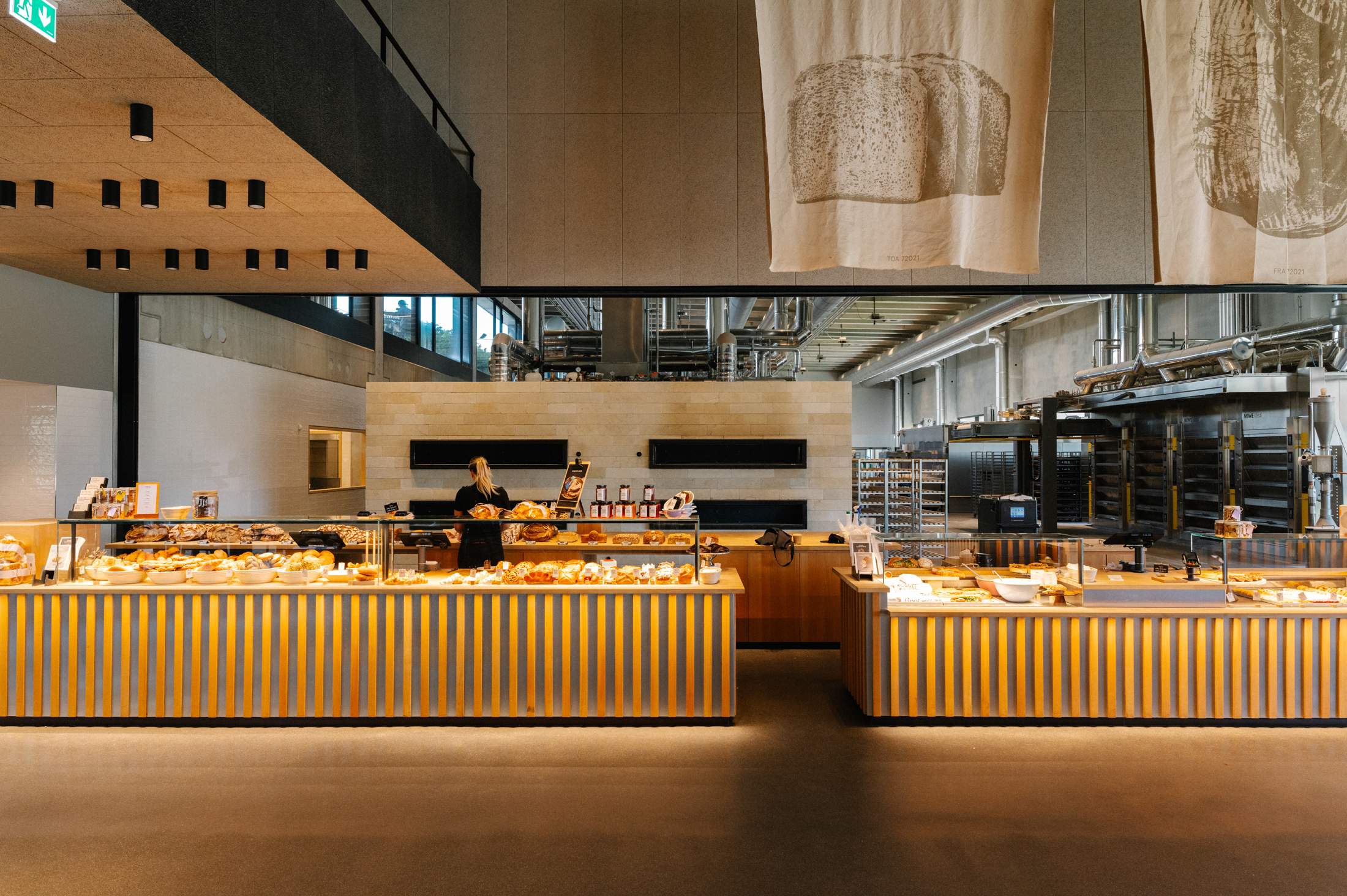
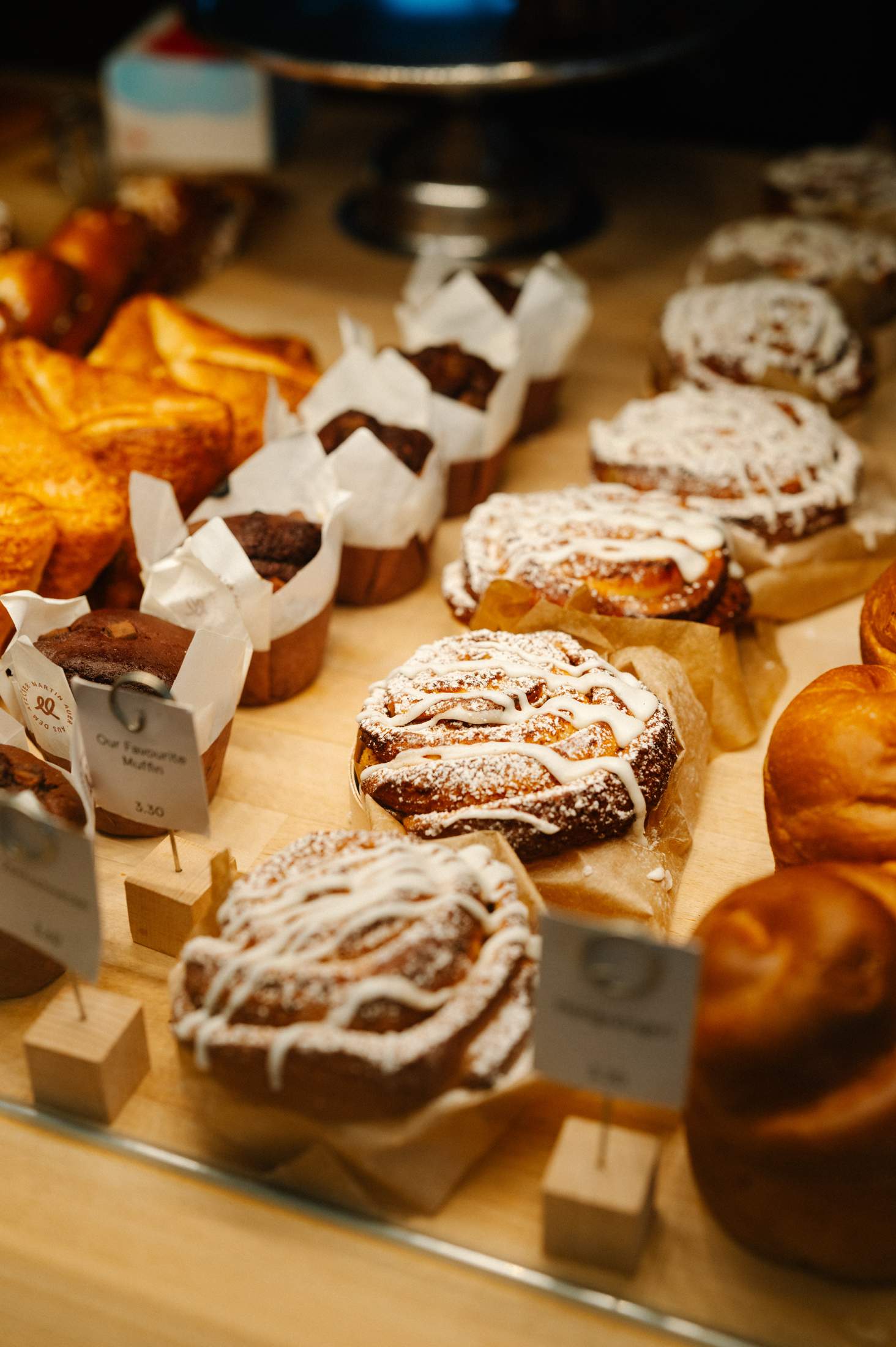
Next year, Auer aims to open an outpost in New York. Its showpiece product will remain the rye sourdough, an Alpine bread that requires a very specific fermentation process. But the baker says that he’s not daunted by the challenge. “It’s not easy to produce bread elsewhere and we know that it will take effort – but it’ll be special to make and sell ours in the US.” — martinauer.at
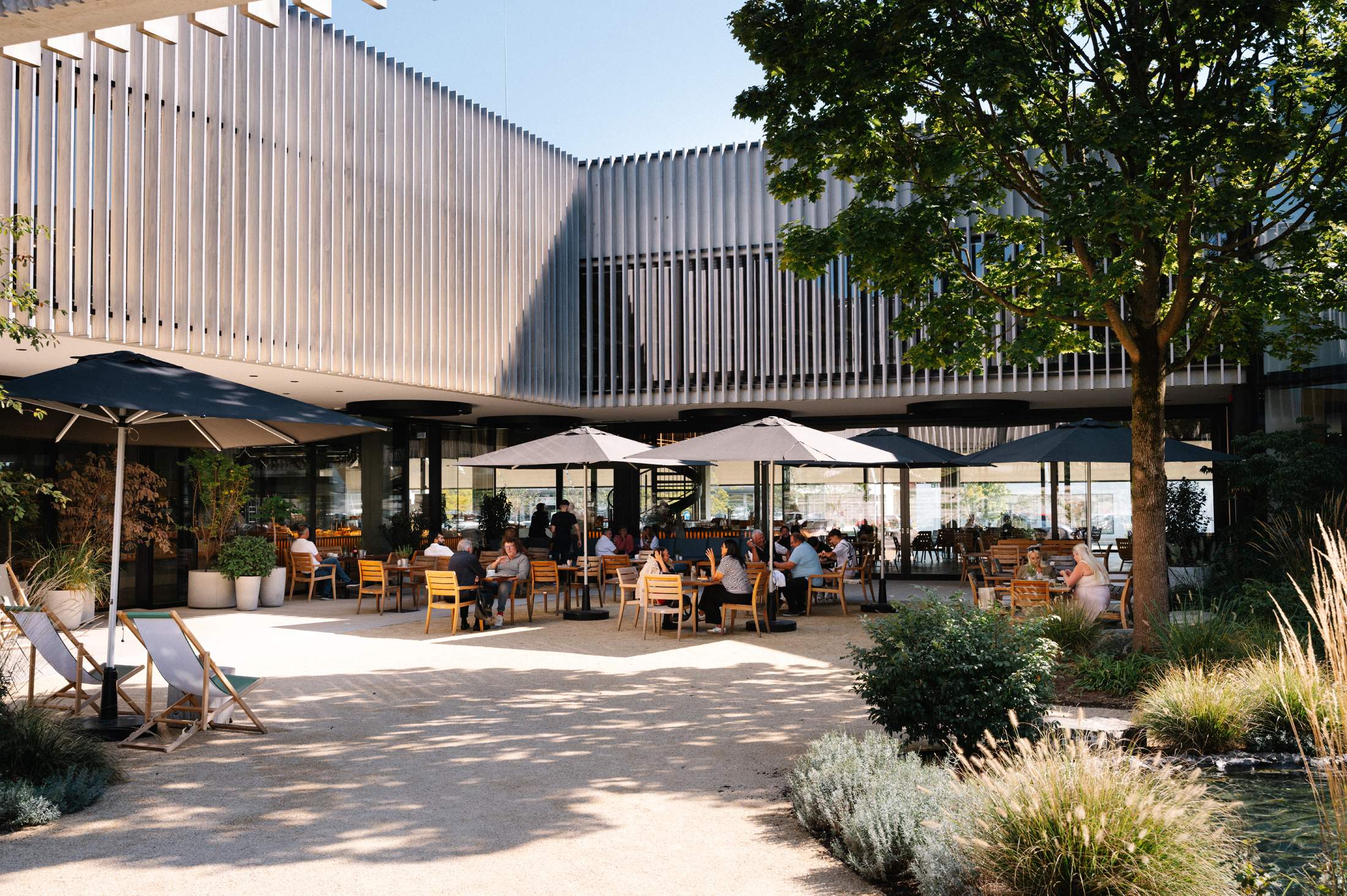
TECH COMPANIES TO WATCH
Shadowmap
Vienna-based Shadowmap visualises sunlight and shadow on a 3D online map. The tool’s applications range from helping architects plan buildings to assisting photographers in finding the perfect light.
shadowmap.org
Standing Ovation
Developed by a Salzburg chef and a carpenter, Standing Ovation helps those with mobility difficulties to perform standing jobs using adjustable seats connected to ceiling rails.
standingovation.at
Cerabyte
As the long-term storage of digital data becomes increasingly important, Cerabyte – with teams in Austria, Germany and the US – has developed ceramic carriers that it claims can store data indefinitely.
cerabyte.com
Instahelp
Founded in Graz, Instahelp is an online counselling service that also conducts mental-health surveys in Austria and Germany.
instahelp.me
Bitpanda
Cryptocurrency trading company Bitpanda became Austria’s first unicorn – a start-up valued at more than $1bn (€920m) – in 2021.
bitpanda.com
Austrian Audio
Austrian Audio was founded in 2017 after Samsung acquired Austrian acoustics engineering company akg, closing its offices in Vienna. A group of former akg personnel stuck around to honour the company’s legacy while creating something new.
austrian.audio
ENTREPRENEUR TO WATCH
Theresia Kohlmayr. Co-founder, Urbanauts
The neighbourhood reviver
Re-energising city districts by placing hospitality at their heart, Theresia Kohlmayr’s innovative hotel company Urbanauts is quickly becoming an international success.
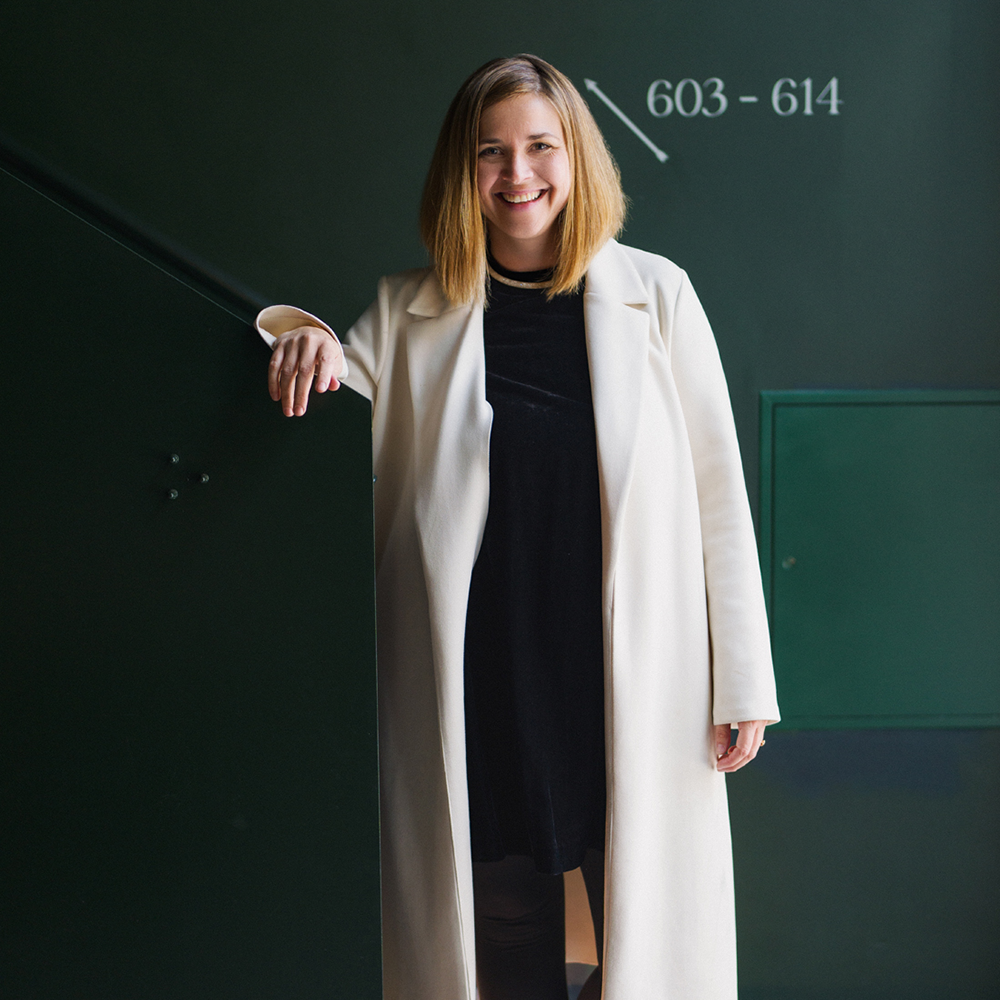
Despite a demanding schedule managing properties across Vienna and beyond, Theresia Kohlmayr always seems to be smiling. One of three university friends who co-founded hospitality company Urbanauts, she recalls its first opening in 2011 as almost surreal. That first hotel space consisted of just a single room, converted from an old tailor’s shop, in a building next to the firm’s office.
Urbanauts revitalises disused city spaces by converting them into accommodation and connecting them to existing cafés and shops, which serve as lobby and breakfast areas. More boutique lofts (now called Grätzlhotels) followed the first opening. In 2017, the company introduced its first “studios”: groups of rooms leased together. The latest was launched in October in Vienna’s 5th district.
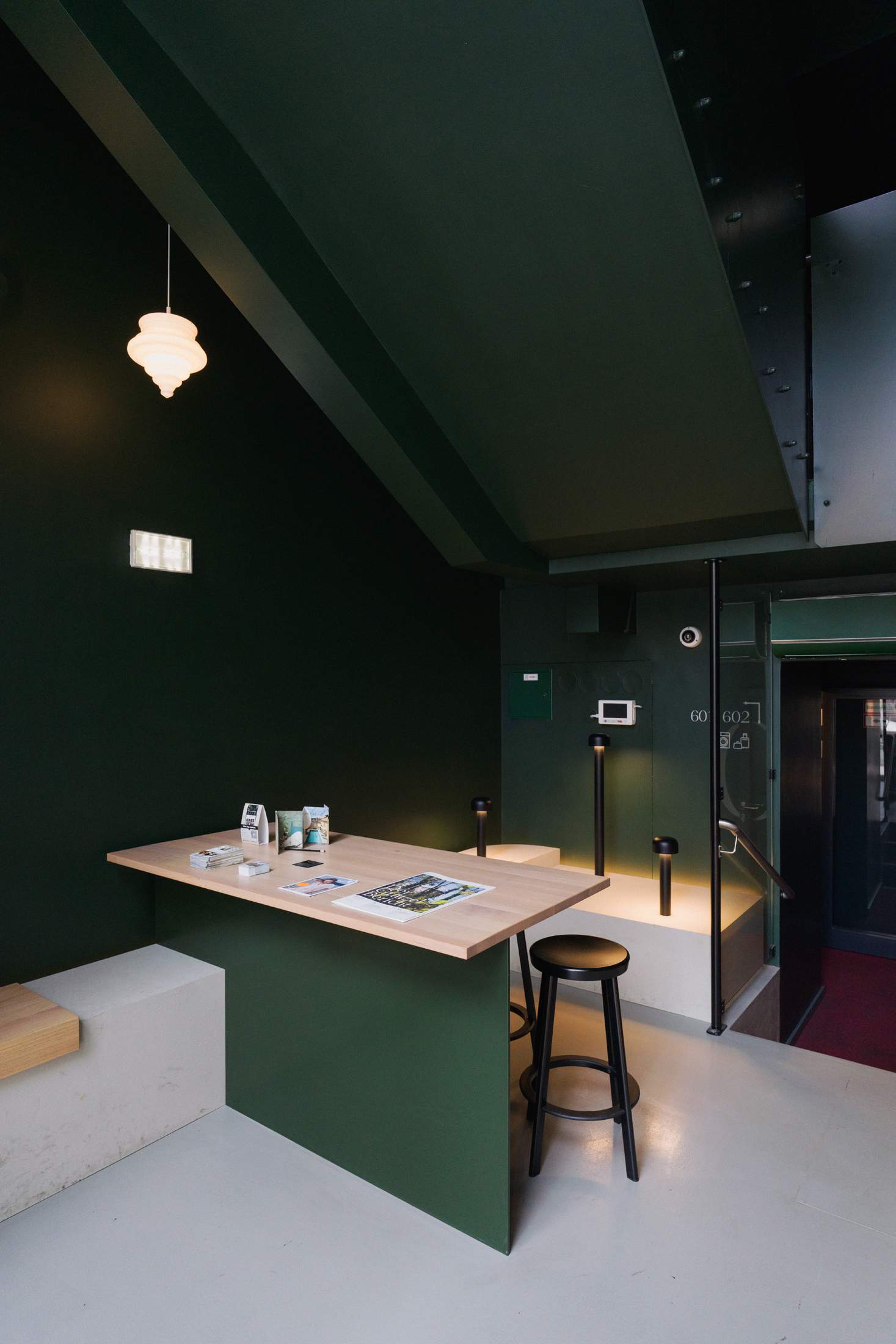
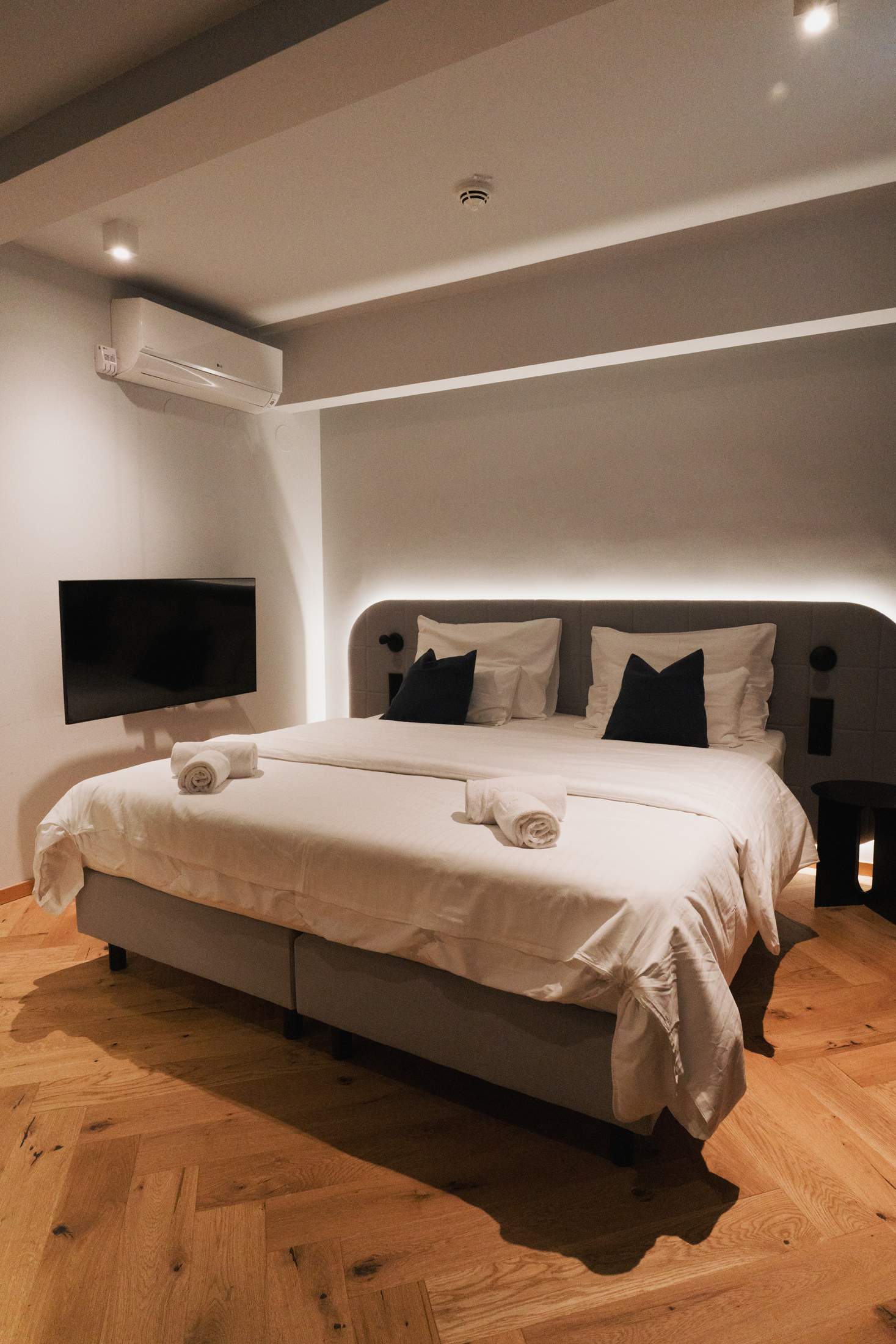
Urbanauts now has locations in Italy, Germany and southern France. Despite this expansion, the mission remains unchanged. “For me, it’s becoming even more relevant,” says Kohlmayr as she inspects a room inside one of the studios in the 6th district. The property was once a theatre and had been vacant for years before Urbanauts took over. “I want to create more of these connecting points in cities, places that link people with their neighbourhoods.” —
urbanauts.eu
ENTREPRENEUR TO WATCH
Marcus Ihlenfeld. Co-founder, Woom
The keen cyclist who remade bikes for kids
A chance conversation and a shared passion for cycling set the wheels in motion for Marcus Ihlenfeld to co-launch a business that now has an annual turnover of more than €100m.
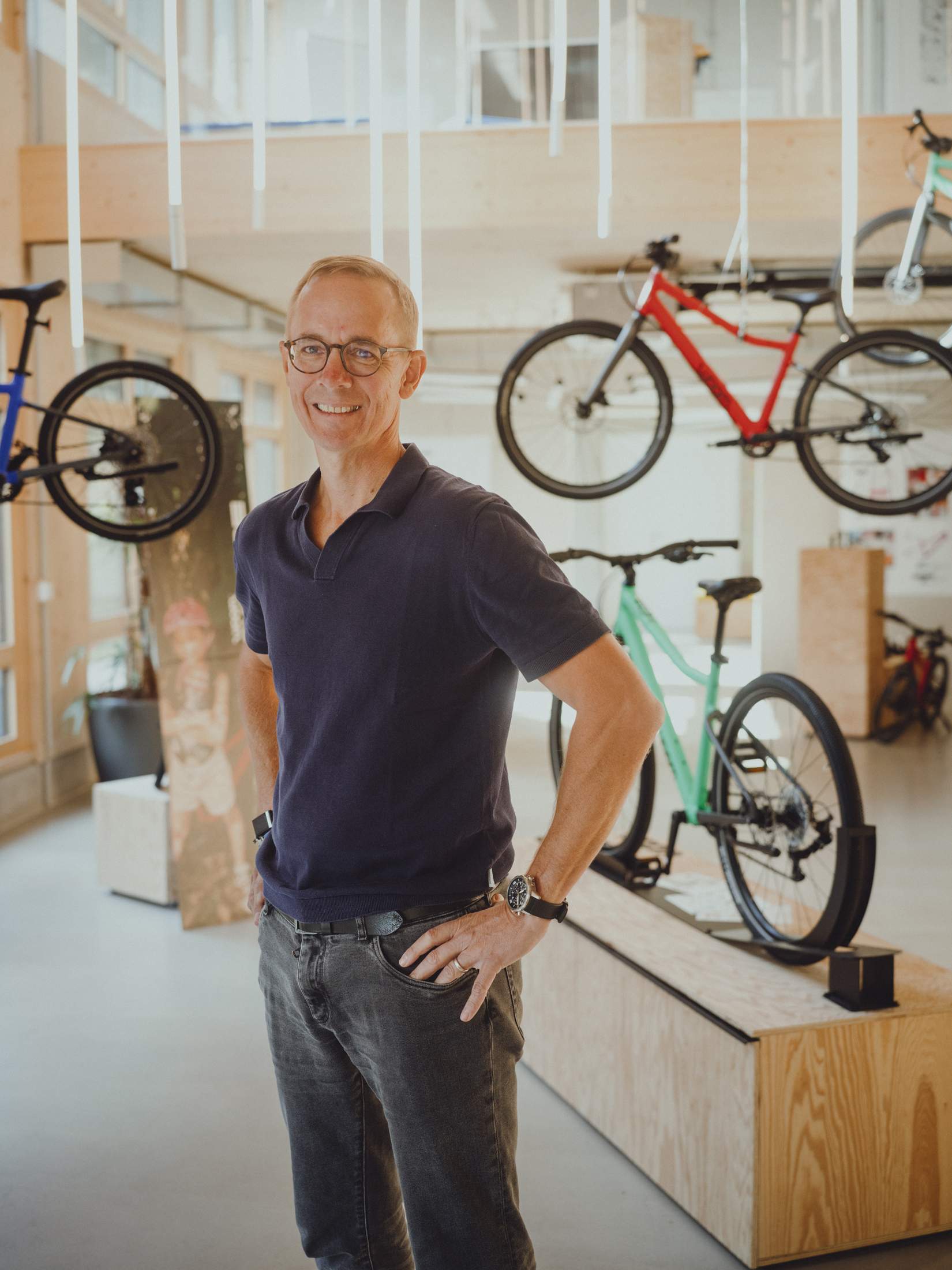
About a decade ago, Marcus Ihlenfeld was working as a marketing director at Opel when he was approached by industrial designer Christian Bezdeka about a project at the car maker. But they soon began discussing something else. Both were keen cyclists and wanted their children to enjoy it too. “There weren’t any good kids’ bikes on the market,” says Ihlenfeld. So, in 2013, they founded Woom in his garage. “I remember that first morning,” says Ihlenfeld. “Boxes with components for the first 500 bikes were all over the house.”
Soon, families were approaching them to buy the bikes, attracted by their lightweight frames and ergonomic design. Ihlenfeld and Bezdeka managed production themselves, sourcing pieces from Taiwan. Ihlenfeld left Opel to focus on Woom; two years ago, however, the pair stepped back from day-to-day operations (though they remain on the board).
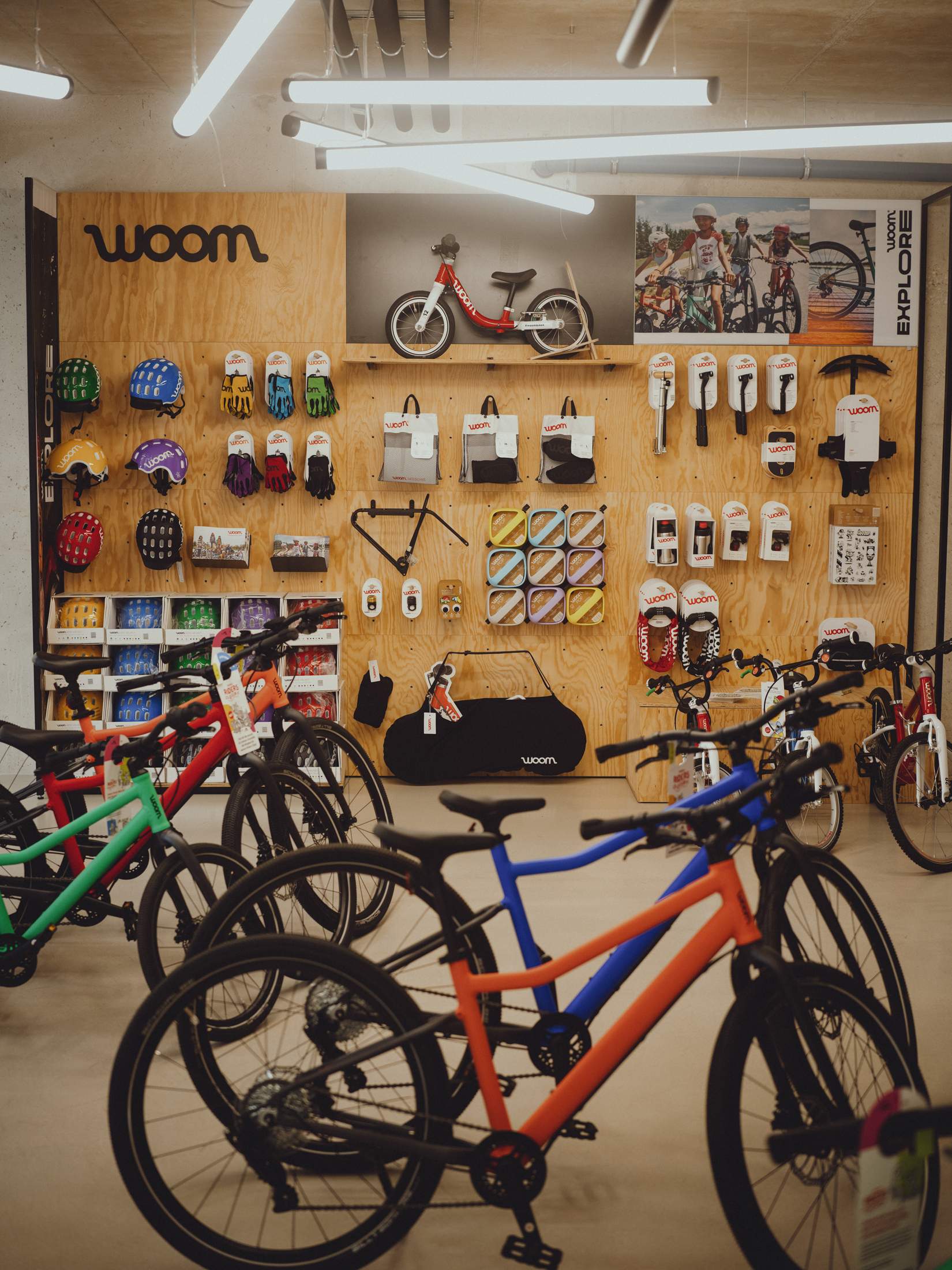
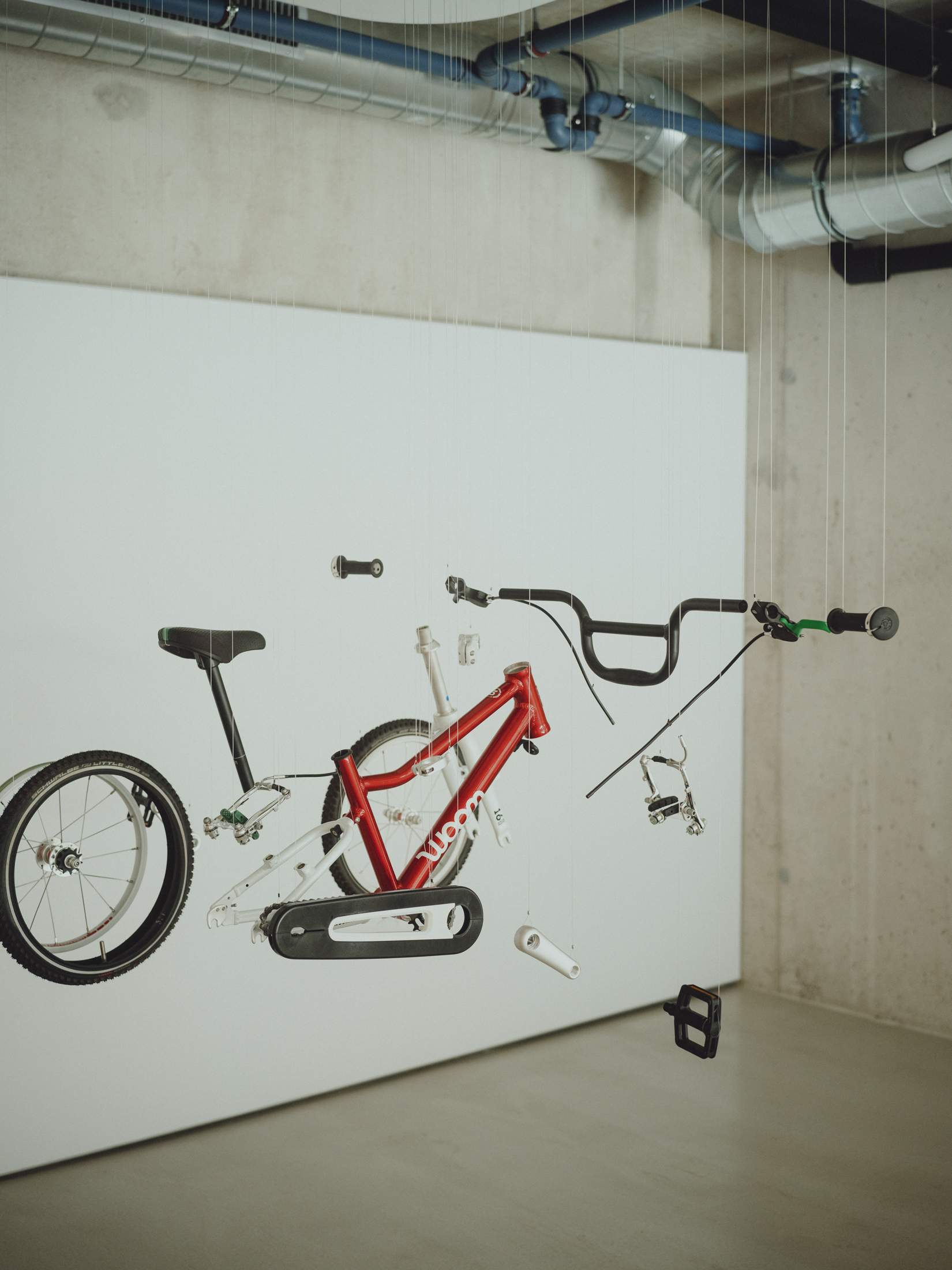
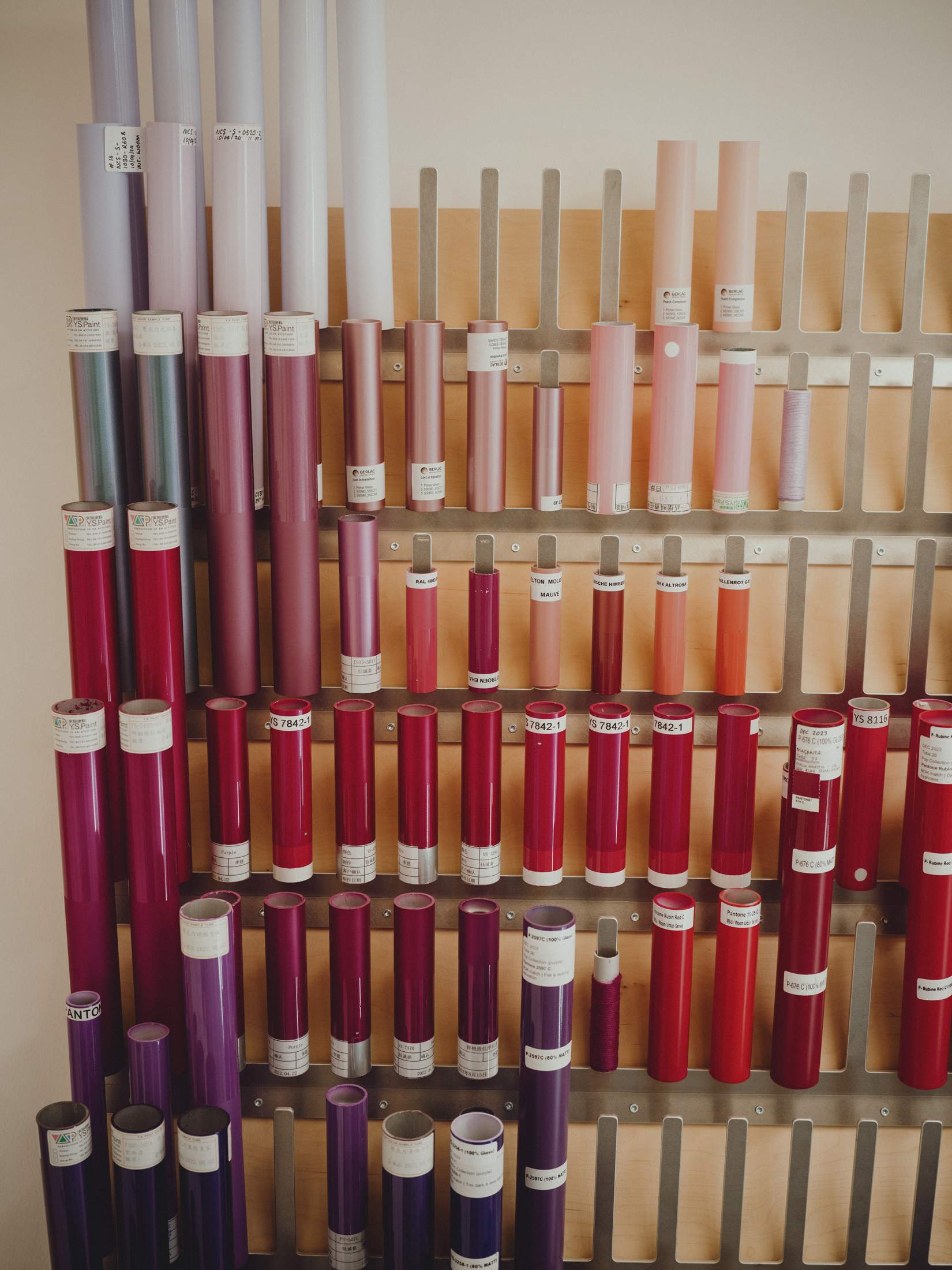
Today they are developing a fresh concept: a height-adjustable table for children. The idea came to them while designing the brand’s new Vienna HQ, a bright, multistorey space with test grounds and engineering teams. The company now sells more than 300,000 bikes a year and has an annual turnover of more than €100m, with a presence in more than 30 countries. — woom.com
ENTREPRENEUR TO WATCH
Isabella and Mike Rabensteiner. Co-founders, Bureau Rabensteiner and Montamont ATC
The Alpine travel experts
The Innsbruck-based Rabensteiners drew on their extensive journeys across Austria to expand their design studio into a publisher of just-so regional guides.

Isabella and Mike Rabensteiner, who first met at university, moved back to their hometown, Innsbruck, to start a family and a business together. Their studio Bureau Rabensteiner, founded in 2011, provides branding and design services for sustainable brands. “It was a time when tourism and hospitality businesses were figuring out different ways of doing things,” says Mike. Their work led them to travel extensively across the region, meeting hoteliers and restaurateurs who inspired them. “It was our dream to tell the story of these wonderful hosts,” says Isabella. When the coronavirus pandemic hit and tourism became more localised, the pair published guides to South Tyrol, Graübunden and Vorarlberg through their Montamont imprint as “a platform for people looking for a new take on Alpine travel”, according to Mike.

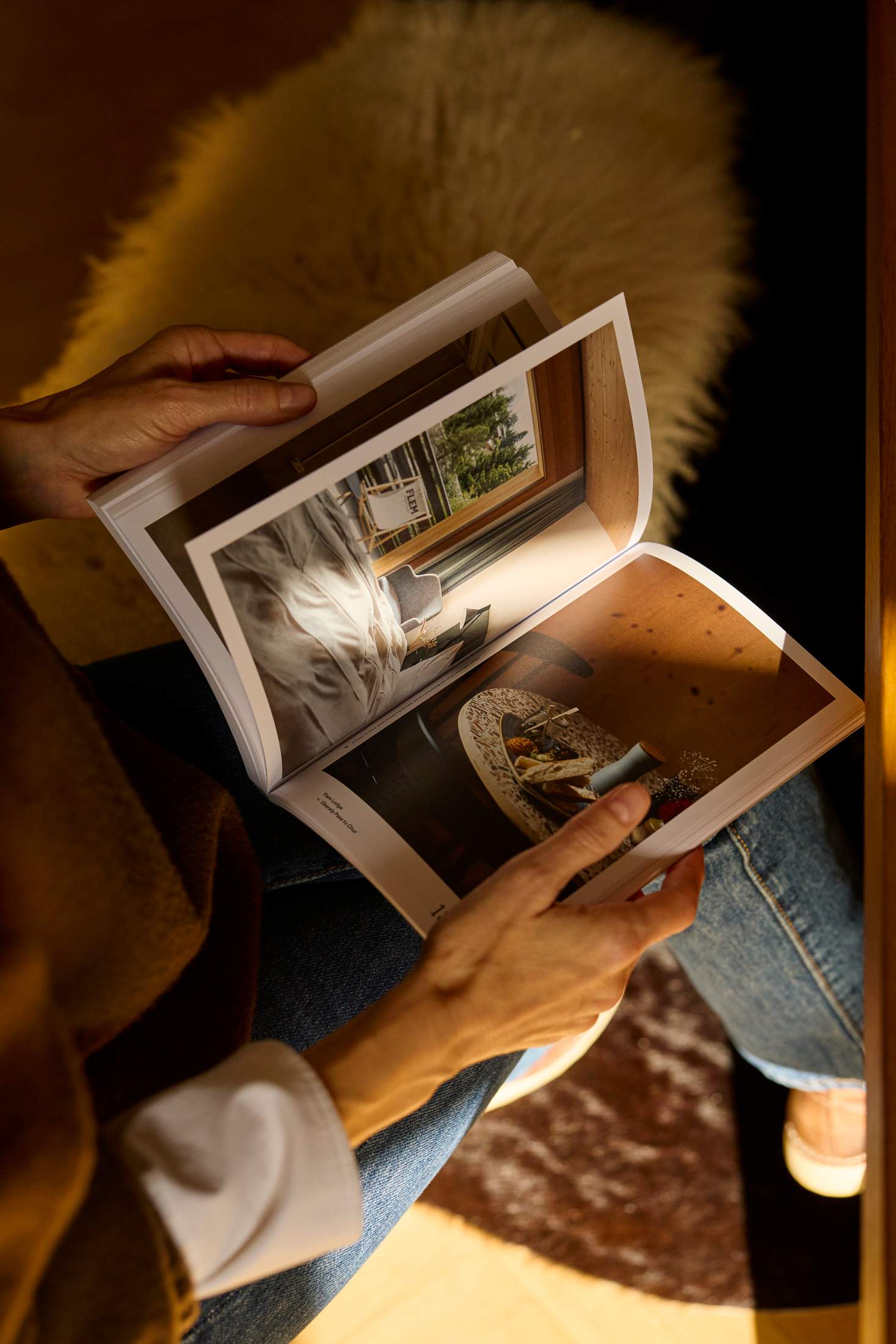
The couple are now putting out their first coffee-table book, Off to the Alps – Italy, featuring photos by Mike and words by Isabella. The project has not only allowed them to discover unique locations in Europe but also appreciate Innsbruck as a place to start a company. “We never felt limited by the size of this city,” says Isabella. “As our work grows more focused on the Alps, so our love for Innsbruck grows.” — bureaurabensteiner.at; montamont.com
THREE ALPINE HOTELS TO TRY
Peterhof Furx
A family-owned chalet complex with outdoor hot tubs in a flowery meadow in Rankweil.
peterhof-furx.at
Hotel Krone Hittisau
A grande dame built in 1838 in the small village of Bregenzerwald.
krone-hittisau.at
Holzgauer Haus
A cosy mountain shelter located 1,500 metres above sea level in the Lechtal Alps.
holzgauerhaus.at
ENTREPRENEUR TO WATCH
Sebastian Proft. Co-owner, Stapf, Dollinger, Feli & Hans and Kings of Indigo
The serendipitous fashion entrepreneur
A family connection brought banker Sebastian Proft and his wife into fashion retail. Combining Austrian heritage with modern sensibilities, they have since become owners of multiple top brands.
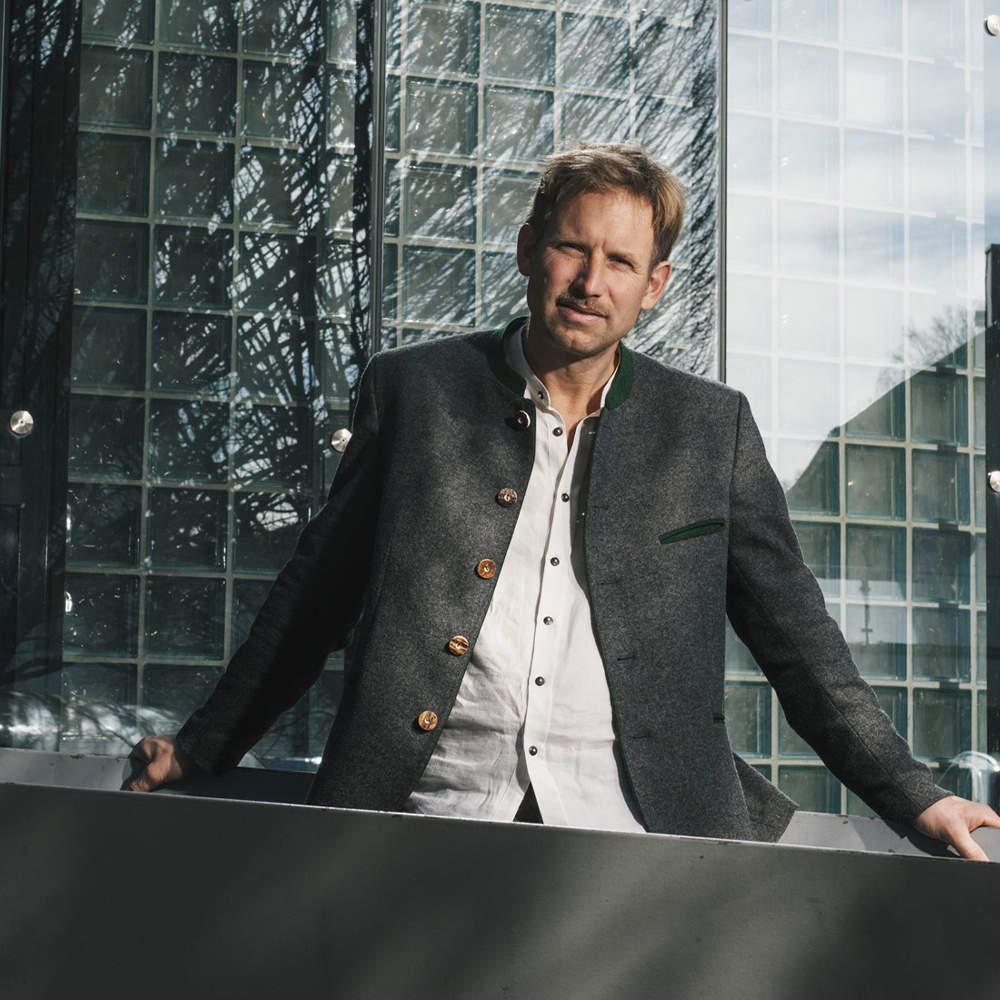
In 2012 investment banker Sebastian Proft and his wife, Kathrin, were living in London when her parents started looking for someone to take over their Salzburg-based clothes shop, Dollinger. The couple decided to move home and run it themselves. To stand out, they chose to focus on traditional Austrian fashion. “There’s less competition and everything is produced here,” says Sebastian.
When Stapf, one of the shop’s suppliers, filed for bankruptcy in 2017, the Profts bought it, excited by its methods. “It still uses old knitting and washing machines,” says Sebastian. Then, having acquired another old-school clothing label called H Moser in 2019, renaming it Feli & Hans, the couple added a modern brand to their collection in 2022: denim company Kings of Indigo. “It felt like the missing piece of the puzzle,” says Sebastian. The label gave them a chance to blend new craft techniques with their own sense of style. “We focus on natural fibres and pieces with a casual silhouette,” he says of its latest spring/summer collection.
For the Profts, “an honest story and a high level of transparency” are key. They’re confident that those seeking a slower approach to fashion will find them and help their brands to thrive. — dollinger.net; stapf.at; felihans.at; kingsofindigo.com
THREE TRADITIONAL BRANDS IN THE PROFTS’ PORTFOLIO
Dollinger
A family-owned clothing company that has an in-house tailoring workshop.
dollinger.net
Stapf
A knitwear-focused brand using wool, knitted and fulled in Wörgl, Tyrol.
stapf.at
Feli & Hans
Formerly H Moser, the brand reimagines modern silhouettes for traditional lederhosen and dirndls.
felihans.at


